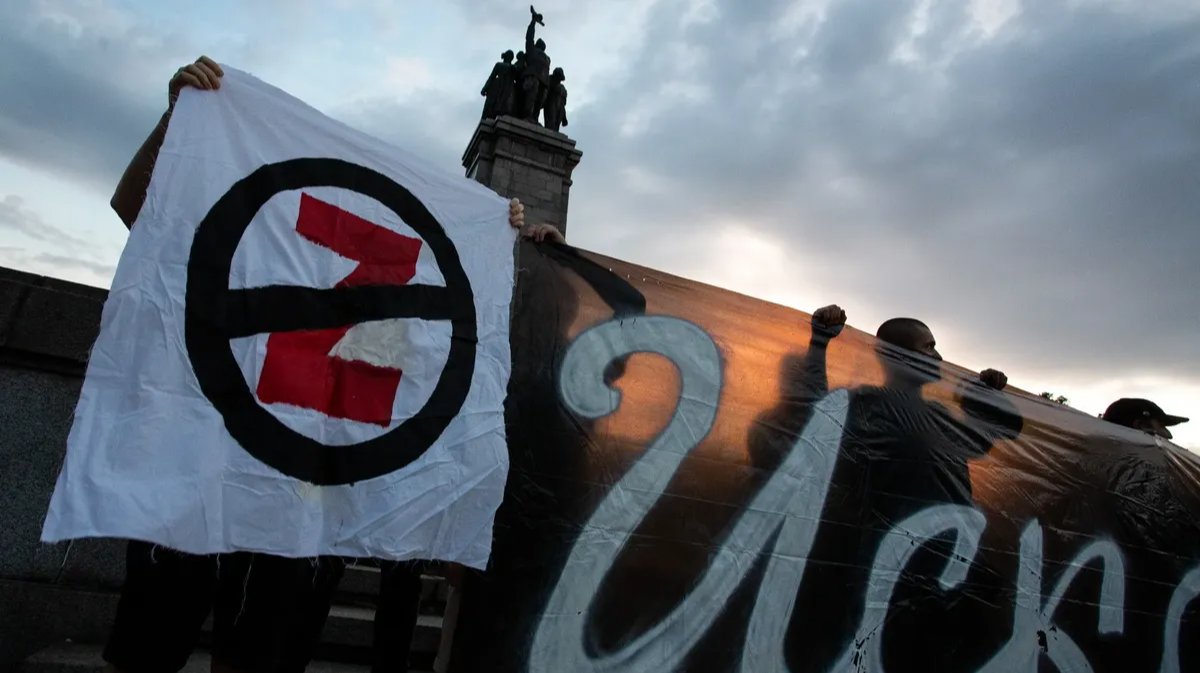Russia has been commonly seen in Bulgaria as an elder sister since the second half of the 19th century, when Emperor Alexander II liberated that Slavic nation from the Ottoman rule. Socialist Bulgaria that emerged following WWII even sought to join the USSR as the 16th republic. The years went by, but the country that joined the European Union and NATO in the 2000s still loved not only Russian culture but also Vladimir Putin, who was seen as a champion of traditional Orthodox values. The war changed everything: Putin’s popularity ratings, which reached 70% at times, plummeted immediately. The country that always completely depended on Russian gas refused to pay Gazprom in rubles in April, and the latter cut off gas supply. Journalist Ilya Azar travelled to Sofia and Varna to see how Moscow managed to alienate not only the Bulgarian authorities but also the local public known for its Russophile sentiments.
Ivan Kalchev has graduated university three times with degrees in physics, IT, and psychology, and he has also been a member of Green Movement, an environmental organisation, for ten years. In March 2022, he went to Ukraine and joined its Armed Forces.
“Why did you go fighting in the first place? Had you served in the military before?” I ask Kalchev as we take our seats with our cups of coffee in a café terrace in Sofia.
“No,” he replies, surprising me with his answer.
Perhaps I was misled by Kalchev’s appearance: he is stern and laconic, and he wears a biker outfit.
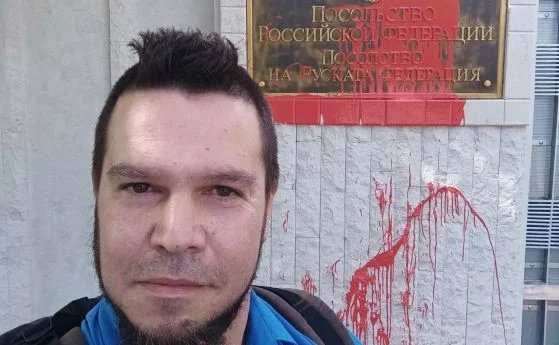
Ivan Kalchev. Photo: offnews.bg
“Then this is quite unusual,” I say.
“And I am an unusual person indeed,” Kalchev answers with a grin and explains that he wanted “to see how the military system works and how people interact in an extremely stressful situation to use this experience later in politics.”
Kalchev has long been involved in street protests against the Bulgarian government, which used to be led for more than ten years by Boyko Borisov from the party known as Citizens for European Development of Bulgaria (GERB, an acronym meaning also ‘national emblem’ or ‘coat of arms’ in Bulgarian). Kalchev is sure that, over all the years that he has attended rallies in Sofia, he has opposed the same enemy that he also fought in Ukraine.
In a broad sense, he means vestiges of the Soviet past.
“Those who governed Bulgaria for 45 years [after WWII], I mean former security officials and their accomplices, are still in control of a big chunk of the economy and the political system,” says Kalchev. “We fought them in the street — without weapons, but with loudspeakers. We blocked street crossings to traffic and arranged rallies and strikes.”
Hristo Ivanov, co-chair of the Democratic Bulgaria bloc of parties, mentions Georgi Gergov, Russia’s honorary consul in Plovdiv, as an example of those folks of whom Kalchev told me.
“He started doing business under Zhivkov [Todor Zhivkov, the longstanding leader of socialist Bulgaria], who tried to launch something similar to the Yugoslav model in the last years of his rule. That man was linked to the Bulgarian KGB, and at the start of the transition [to a market economy], he suddenly emerged flush with cash, made friends with Borisov, and began influencing appointments, including the choice of a candidate for prosecutor general.”
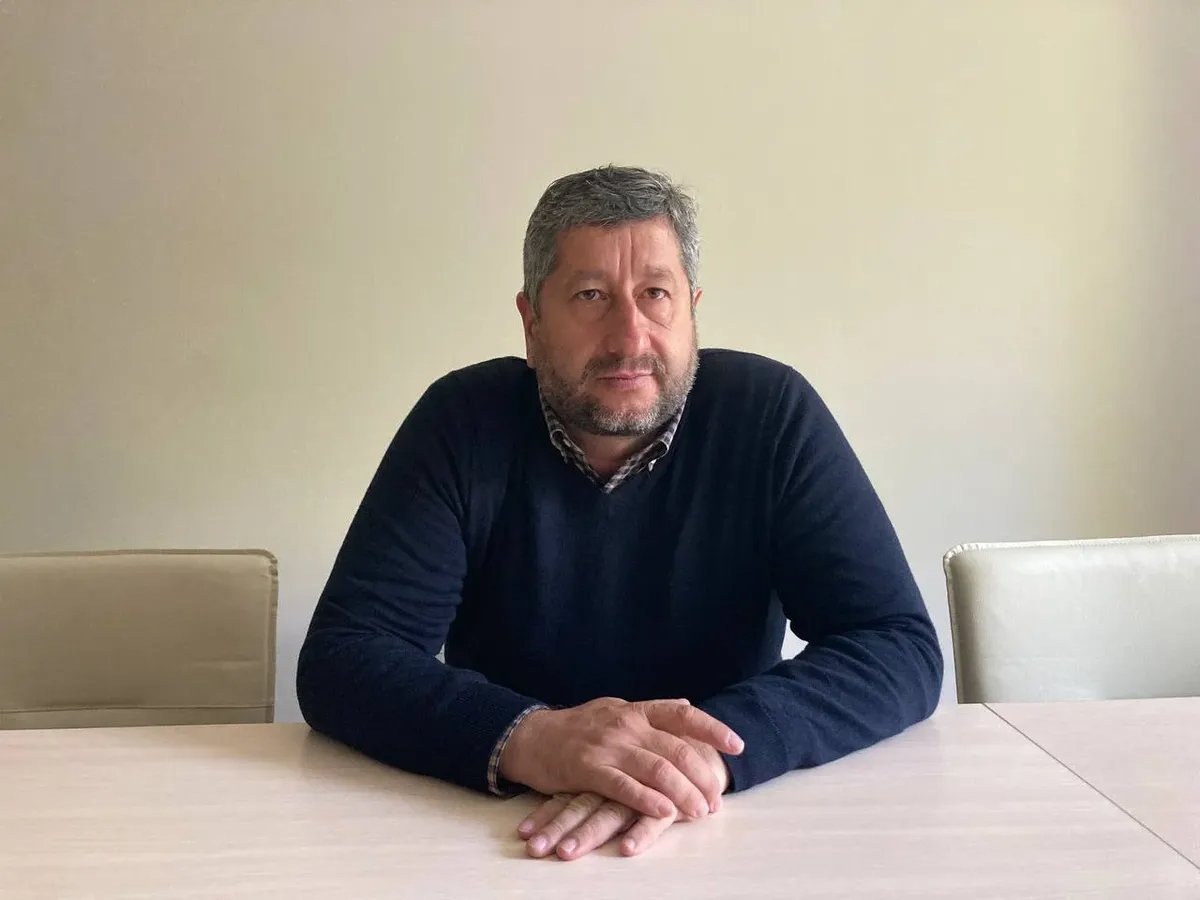
Hristo Ivanov. Photo: Ilya Azar, exclusively for Novaya Gazeta Europe
In Ukraine, Kalchev served in “the only battalion whose commanders used English”. In May, his unit was involved in liberating villages in the Kharkiv region and “forced Russian artillery to retreat by 15–20 kilometres, which enabled Kharkiv to return to normal life”. Kalchev also entered Kupiansk during the Ukrainian Army’s counteroffensive in September.
“It’s still strange to see an absolutely peaceful life in Sofia,” Kalchev says, sipping at his coffee.
“Planning to go back?” I ask him.
“Perhaps not as a soldier, but maybe in some other role. As a reporter, for example.”
“Had enough of it?”
“I am needed here more than there. Ukraine is winning the war without me, anyway, but someone has to give hope to people here,” Kalchev replies.
Nonstop elections
Kalchev returned from the war to run for parliament on 2 October. He was nominated by the Democratic Bulgaria bloc of parties and lost. This was the third election in which Kalchev suffered a defeat, and yet there are no reasons for him to lose heart: it is quite likely that the Bulgarians would have to go to polling stations again next spring.
The thing is, the Bulgarians have elected parliament four times over the past year and a half, but the policymakers have still been unable to put together a stable coalition.
“I like teasing local lawmakers,” former Russian State Duma [lower chamber of parliament] deputy Gennady Gudkov, who is currently living in Bulgaria, says with a smile. “I tell them: ‘Guys, I was elected to the Duma four times, but it was over the course of 15 years. And you manage to get elected three times in a year! It’s amazing how experienced you must be now!’ But anyway, they’re in a better position than us. Russia has elections without elections, but here they do have [real] elections, even though unending ones.”
The election in April 2021 was won by GERB, and the party There is Such a People led by Slavi Trifonov, a TV host and front man of the Ku-ku Band musical group, came in second. Borisov failed to build a coalition at the time, and GERB and There is Such People changed places in the next polls in July 2021. No coalition was put together again, and frustrated voters then backed a new political project called We Continue the Change.
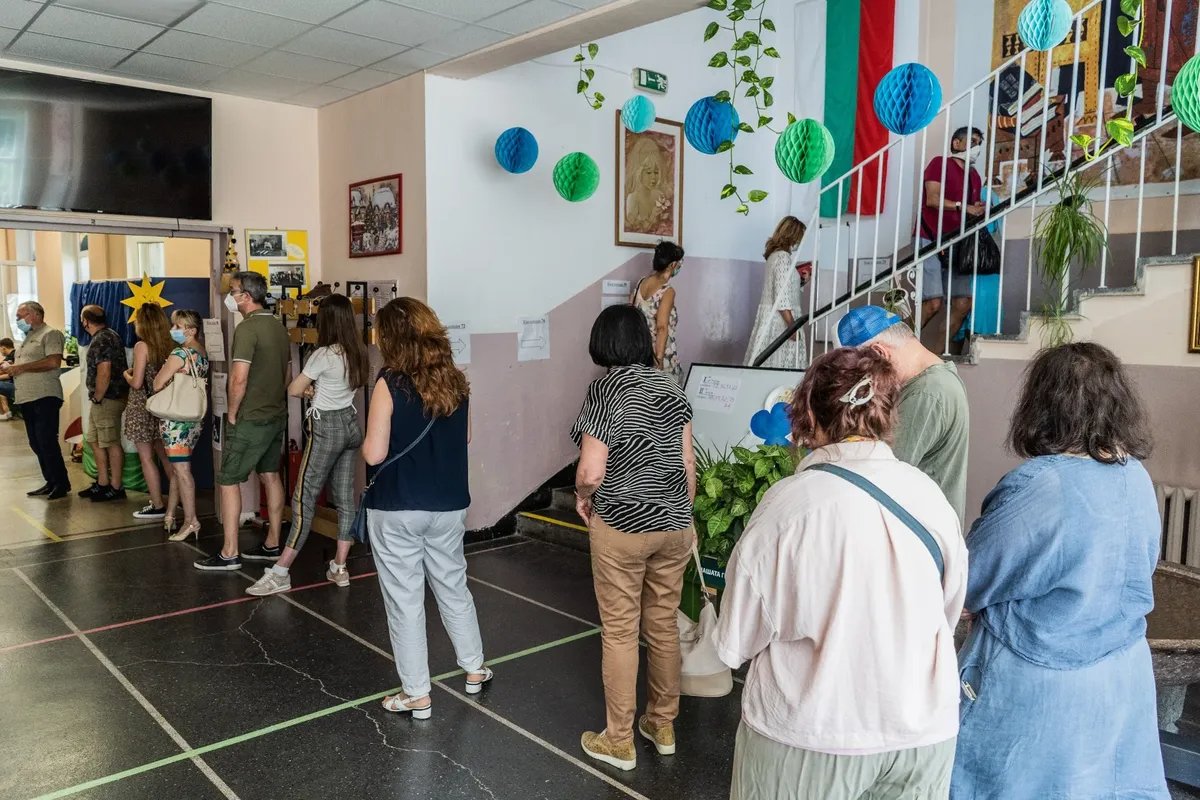
A queue of voters at a polling station during parliamentary elections in Bulgaria on July 11, 2021. Photo:Hristo Rusev / Getty Images
Its leader Kiril Petkov, a businessman and a Harvard University graduate, was just barely able to form a coalition and become prime minister, and yet the government broke up half a year later, as Trifonov quit the flimsy alliance, after which a new parliamentary election was called.
While GERB won it on October 4, 2022, it got only 67 out of the 240 mandates. The We Continue the Change party led by ex-Prime Minister Petkov came in second with 53 mandates, and the Movement for Rights and Freedoms (DPS), a party supported by the Turkish minority, has the third-largest faction with 36 mandates. The pro-Russian parties Revival, the Bulgarian Socialist Party (BSP), and Bulgarian Rise got 27, 25, and 12 seats respectively. A coalition has to comprise at least 121 lawmakers, and yet the parties have still been unable to build a working configuration even a month after the election.
Ivanov from the Democratic Bulgaria bloc, which garnered 20 mandates, says that there used to be two major parties in Bulgarian politics before 2001, namely the former communists (BSP) and the new rightists (the Union of Democratic Forces), but “everything fragmented” after the last Bulgarian czar, Simeon II, returned to the country and engaged in politics.
“In that situation, you had to build coalitions including one major party and several small ones of all sorts. But now everything’s been chopped up even more, like a salad with no dressing,” he says.
Opposing the Pumpkin
“Those Harvard guys are quite good. But I recently spoke to the U.S. ambassador to Bulgaria, and he said [referring to Petkov]: ‘You can’t fight everyone simultaneously’. I also think so. Plus, there is a negative role of Boyko Borisov, who is corrupt to the core, and that’s why nobody wants to work together with GERB, and nobody will. True, there are some sensible guys in his party, but none of them are as charismatic as Borisov himself. And the people in Bulgaria are very much like in Russia, and that’s why Borisov looks appealing to them. That is, typical Balkan specifics,” says Gennady Gudkov in describing the lay of the land in Bulgarian politics in his usual plain manner.
Indeed, no one wants to sit down at the same negotiating table with Borisov. He is a classical man-of-the-people type of politician. He was born to a family of a police officer and a teacher, served in a fire department, and worked as a karate coach. In 1991, he founded a private security firm called Ipon-1, which was responsible for personal security of former socialist Bulgarian leader Todor Zhivkov and then Simeon II. Owing to the distinctive shape of his close-cropped skull, Borisov is commonly nicknamed the Pumpkin.
Svetlana Djamdjieva, editor-in-chief of the Bulgarian online publication Club Z (the name has no relation to the Russian army’s special operation in Ukraine), says Borisov’s coterie included numerous businesspeople, his premiership was plagued by massive corruption, and most of the money was shared within his inner circle. Few in Bulgaria (except for members of the GERB party) would dispute that. Activist Petar Tanev and I are walking down a road paved with yellow bricks in central Sofia.
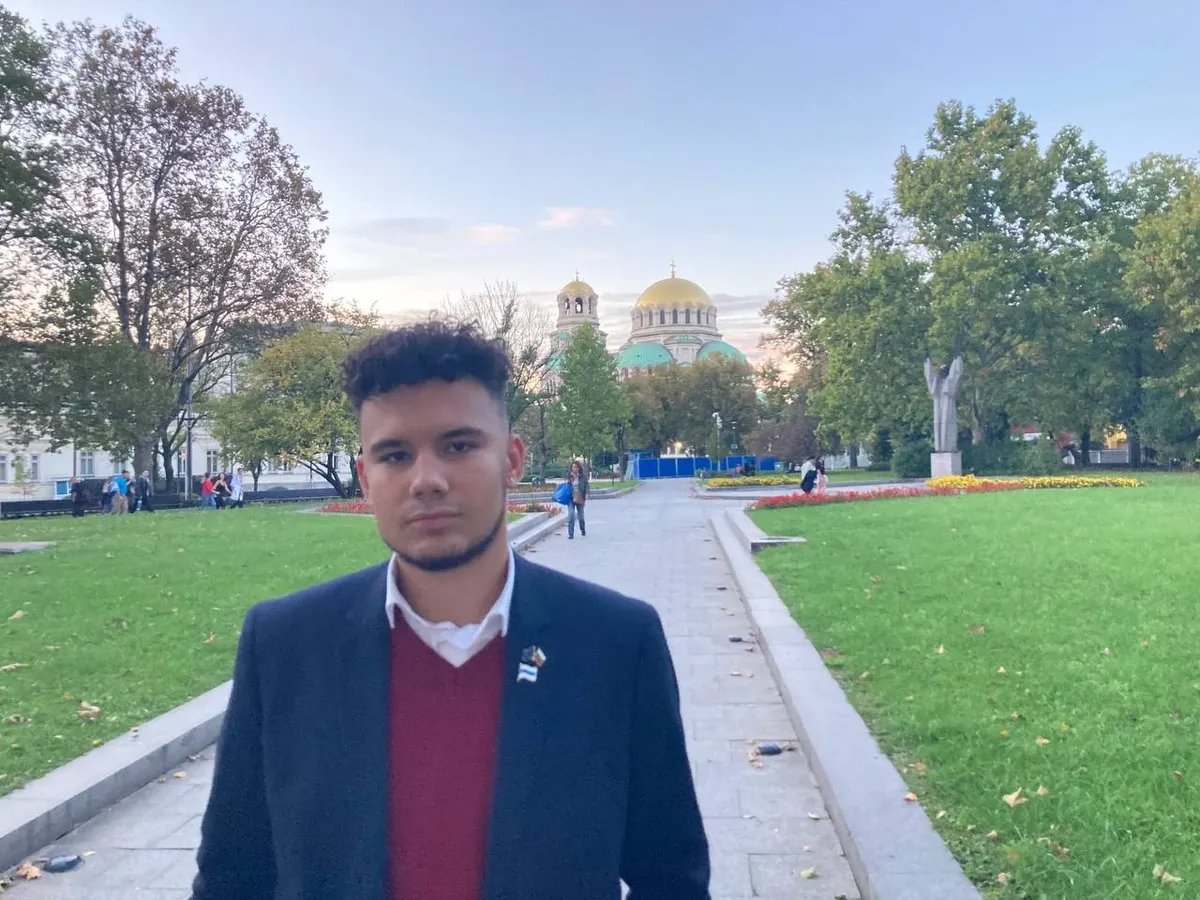
Petar Tanev. Photo: Ilya Azar, exclusively for Novaya Gazeta Europe
“GERB is like a Bulgarian edition of United Russia,” Tanev says. “It is also engaged in corrupt activities, and everyone understands everything about their schemes. For example, this yellow road, which was built back in the 19th century, is crumbling now not because it’s old, but because a GERB mayor renovated it.”
Another thing Borisov is criticised for is being a Kremlin lackey.
“He was nearly an autocrat, and he governed Bulgaria alone for 11 years. He didn’t want to see NATO’s base and its military ships in Bulgaria, but he wanted to see Russian tourists. During his rule, nobody spoke against Russia’s and Gazprom’s interests here. Borisov fervently served Putin for about ten years, he built the Balkan Stream pipeline on Bulgarian money, and it’s unlikely that we have recouped those expenditures,” says journalist and writer Ivo Indzhev.
An elegant man in a lilac shirt and a blue vest, with a long umbrella — he looks like an elderly English writer at a Greek resort. Indzhev used to be a TV host, but he lost his job because of a conflict with former Bulgarian President Georgi Parvanov. As befits a true journalist, Indzhev criticises everyone indiscriminately, which is perhaps what disrupted his TV career.
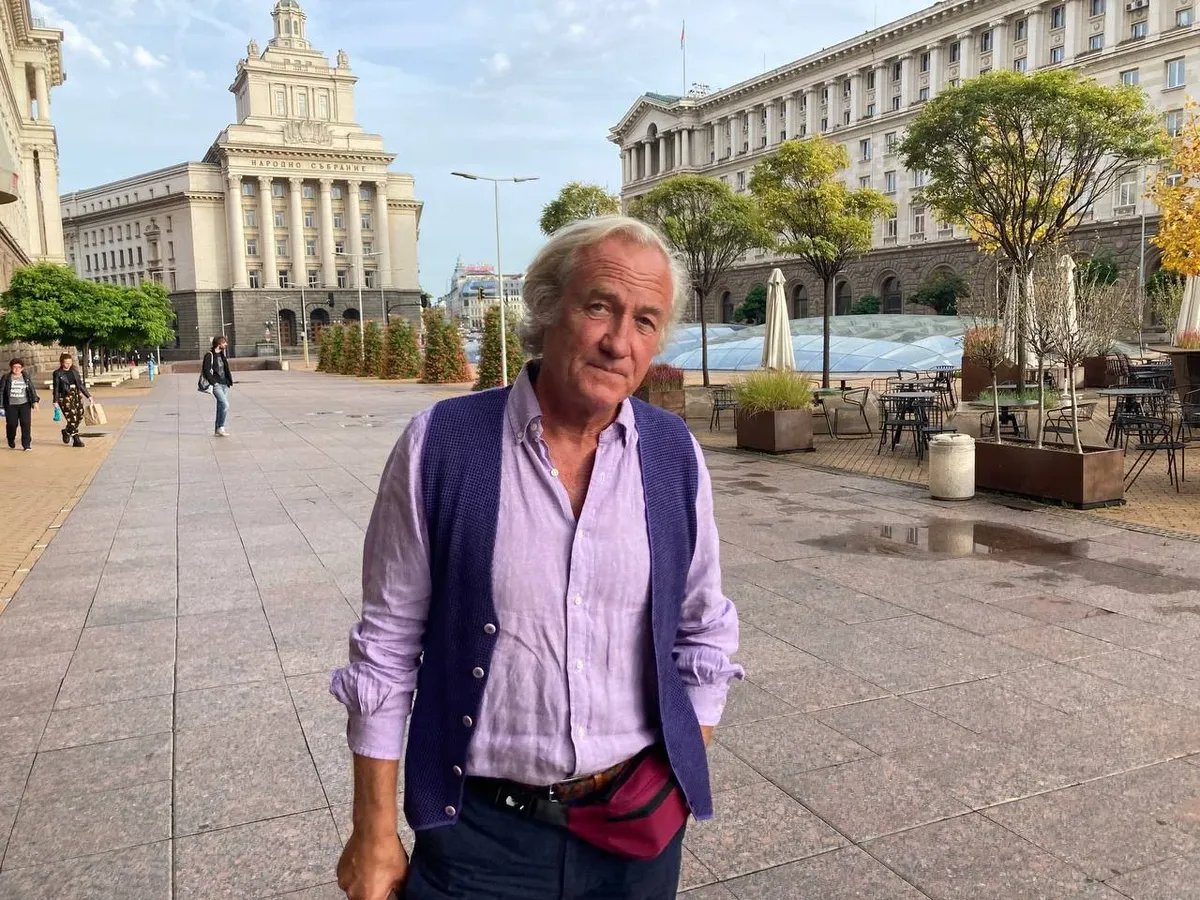
Ivo Indzhev. Photo: Ilya Azar, exclusively for Novaya Gazeta Europe
As Indzhev put it, Borisov has always played both sides against the middle and presented himself as an intermediary between the West and Moscow.
“But that’s nonsense, as they clearly didn’t need an intermediary from such a small country. Borisov can utter any lie if he believes this could win him more voters. He doesn’t speak foreign languages, and he’s hardly read a single book in his entire life. He is a Neanderthal face of Bulgarians,” says the journalist without mincing words. “However, people believed him. After all, Borisov is a very convincing liar, and besides, he speaks a very plain language. He once said while meeting factory workers: ‘You’re simple folks, and I’m simple, too, and that’s why we understand each other so well.’ Those words have become his motto.”
Borisov’s opponents have vowed to rid Bulgaria of him and his sidekicks sooner or later, calling this process de-Putinisation.
“When we say that Bulgaria should be de-Putinised, we mean three things simultaneously. Firstly, of course, this concerns the Kremlin’s instruments of direct influence, and secondly, the eradication of corruption. From our viewpoint, corruption and the Kremlin’s influence are interrelated very closely. Thirdly, it’s about trends toward authoritarianism and concentration of power,” says Hristo Ivanov from Democratic Bulgaria, which is supported by urban intellectuals and the middle class.
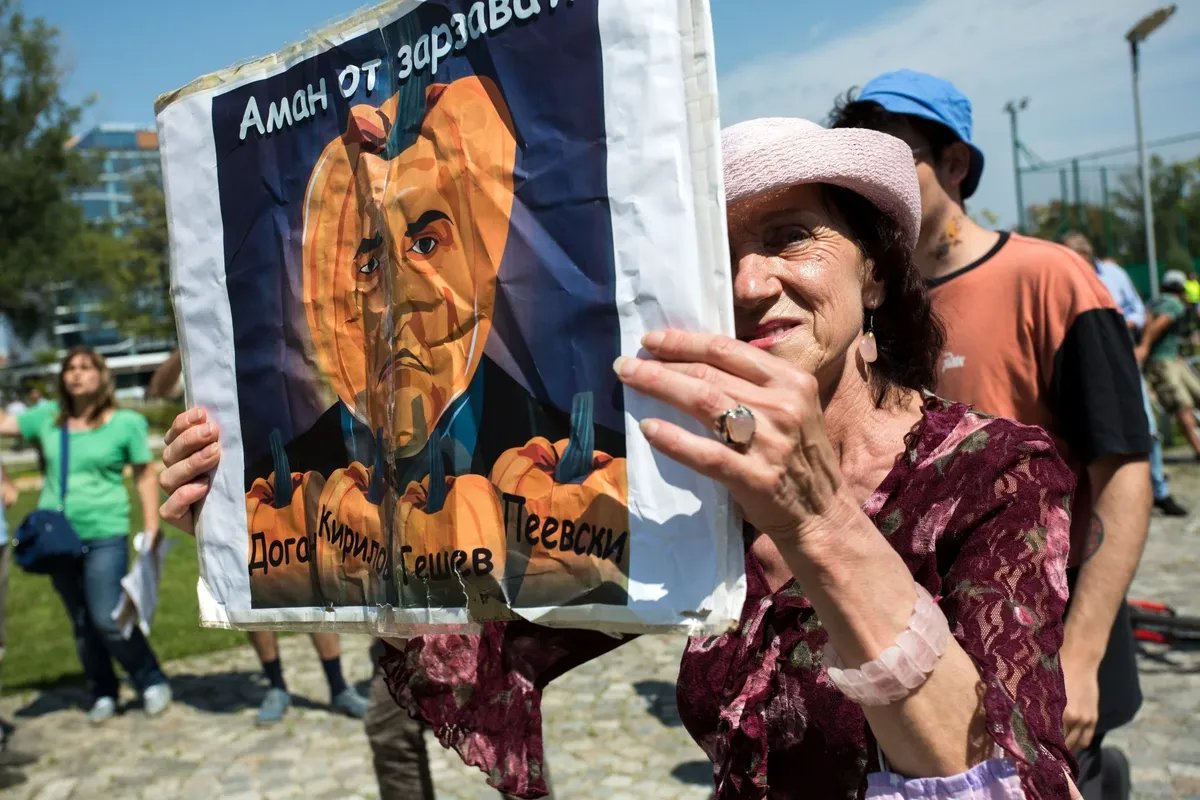
A protest rally demanding Prime Minister Boyko Borisov's and Chief Prosecutor Ivan Geshev's resignation. Sofia, August 5, 2020. Photo: Hristo Vladev / NurPhoto / Getty Images
Mr. President
Ivanov criticises GERB for “stagnating and harping upon the 600,000 votes they got” in the elections, and at the same time, he reasons that, if he joins a coalition with Borisov, his own popularity ratings would drop to zero.
“I understand this, but the people supporting GERB, the largest democratic party in Bulgaria, which dominated for 12 years and has done a lot of good, won’t understand an alliance with Petkov or Democratic Bulgaria,” says Rosen Plevneliev, former president of Bulgaria from 2012 to 2017.
Plevneliev hosts me in his spacious office in the virtually uninhabited Technopark in Sofia. The ex-president wears jeans and a checked shirt; as he sees me, his face immediately breaks into a smile staying on his face for the whole of our half-hour conversation, which Plevneliev carries on in near-perfect English — obviously maintaining a carefully built image of a progressive pro-Western politician.
While we talk about Bulgaria, its relationship with Russia, and the war in Ukraine, he regularly switches the conversation to himself. By the end of our interview, I even start to think that I am writing not a report on the Bulgarian-Russian relationship but a sketch about Plevneliev’s role in history.
“I was the only pro-European and pro-democratic president, I opposed Putin, I was a person of the year in Ukraine in 2015, I am a close ally of Putin’s worst enemies, Mikhail Khodorkovsky and Garry Kasparov,” he goes on to say.
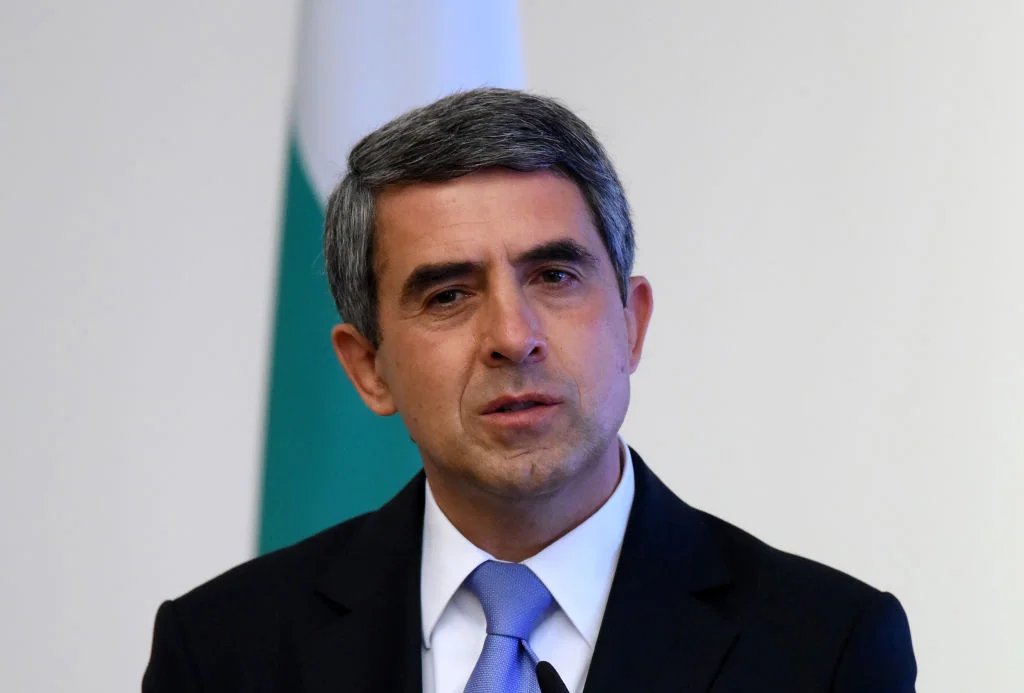
Former Bulgarian President Rosen Plevneliev. Photo: Rainer Jensen / picture alliance / Getty Images
Russia’s annexation of Crimea and the war in Donbas occurred during Plevneliev’s presidential tenure. He invited me to watch his “historic speech” at the European Parliament, in which he supposedly predicted what is currently happening to Ukraine.
“I was a driver of more severe sanctions against Russia back in 2014, against the will of Merkel, [Italian Prime Minister Matteo] Renzi, and the Hungarian premier,” he tells me.
Plevneliev met Putin only once.
“Of course, as a big Putin critic, I wasn’t invited anywhere, and the Russian ambassador hated all my speeches and interviews.
But I travelled to Sochi at the International Olympic Committee’s invitation to attend the closing ceremony of the Olympic Games. Before the ceremony, Putin was supposed to speak to me, [IOC President] Thomas Bach, the South Korean president, the Serbian premier, and others for about an hour, but of course, he arrived too late,” Plevneliev says.
The ex-Bulgarian president says Putin showed up 15 minutes before the start of the ceremony.
“I extended my hand to him and looked into his eyes, and he told me in Russian, ‘Thank you, Mr. President, for coming to the closing ceremony’. There was an interpreter there, and so, considering that Putin started speaking in Russian, I decided to reply in Bulgarian,” Plevneliev said.
Putin stared at his Bulgarian counterpart and muttered through clenched teeth, “You’re the only Bulgarian president who’s spoken to me in the Bulgarian rather than the Russian language.” Plevneliev replied, “Mr. President, you’re speaking in Russia’s official language, and I am speaking in Bulgaria’s official language, but if you’d like, we could speak German, which both of us know well.” Plevneliev claims that Putin could not bear this brazenness, got angry and walked away.
Definitely, as someone coming from GERB, Plevneliev defends Boyko Borisov as much as he can, maintaining that there is no evidence of his corruptness whatsoever.
“Propaganda without proof can help mobilise voters, but it doesn’t help a country to have a culture of stable coalitions that can produce governments. They [Petkov’s government] controlled the Interior Ministry and all special services, and yet they didn’t manage to prove anything. On the contrary, we’ve seen that those who pretend to oppose corruption have been involved in lots of shady dealings themselves,” he says.
Plevneliev insists that GERB “has modernised the country over the past ten years, creating new industries.” Here he starts recounting his achievements again.
“As president, I was very proud of creating 165,000 new jobs in various industries of the future. When I was a minister in GERB’s first government, I cooperated with leading international anti-corruption institutions, and we set up the most transparent and efficient agencies in the EU in 2009–2011. But then came young populists from Harvard, who honoured Marx and believed that they could raise pensions by 20% at the expense of Bulgarian children, just to gain more popularity. They had no plan, all of their decisions were non-transparent, their modernisation and investment projects stalled, and the country plunged into chaos.”
“But it’s not you who are the GERB leader,” I barely manage to put in a remark.
“Borisov created the party, he is entitled to work in it, and he no longer has the ambition of being a minister or a prime minister. He tried to build bridges with Petkov and Ivanov, but they wouldn’t do the same. I am currently mediating negotiations between parties. After all, as long as a war is going on 400 kilometres away from Bulgaria, it’s critical to set up a pro-European government, which Petkov is blocking,” he says.
“For a mediator, you are too critical of one of the sides.”
“But they unlawfully arrested their principal opponent! You can’t do such things! That’s what Putin does routinely. I am not going to forgive them their mistakes,” he said.
Plevneliev said he is currently working to ensure Bulgaria’s maximum possible integration with the European Union.
“We need to join the Schengen Agreement and the Eurozone, get rid of Soviet weapons by sending them to Ukraine, so that they could defend themselves, and receive modern weapons from our NATO partners instead, and we also need to oppose Russian propaganda, cyberwar, and energy war to become independent from Russia!” he concludes.
Weapons of omission
Contrary to Plevneliev’s belligerent resolve, the general atmosphere in Bulgaria does not match his words. Unlike Prague or Riga, there are very few Ukrainian flags either on government buildings or in windows of ordinary city dwellers in Sofia or Varna. Asked how many more Bulgarians might have gone to fight in Ukraine, Ivan Kalchev tells me he knows only two.
“You can even see more Russian than Ukrainian flags in seaside towns,” says Daniel Smilov, a political scientist from the Centre of Liberal Strategies. “The point is, while Bulgarian society showed solidarity with Ukraine and everyone helped refugees at the start of the war, now Russophile parties’ activities have made people feel less sure about what is happening and begin saying that the situation is complicated and Bulgaria should pursue primarily its own economic interests.”
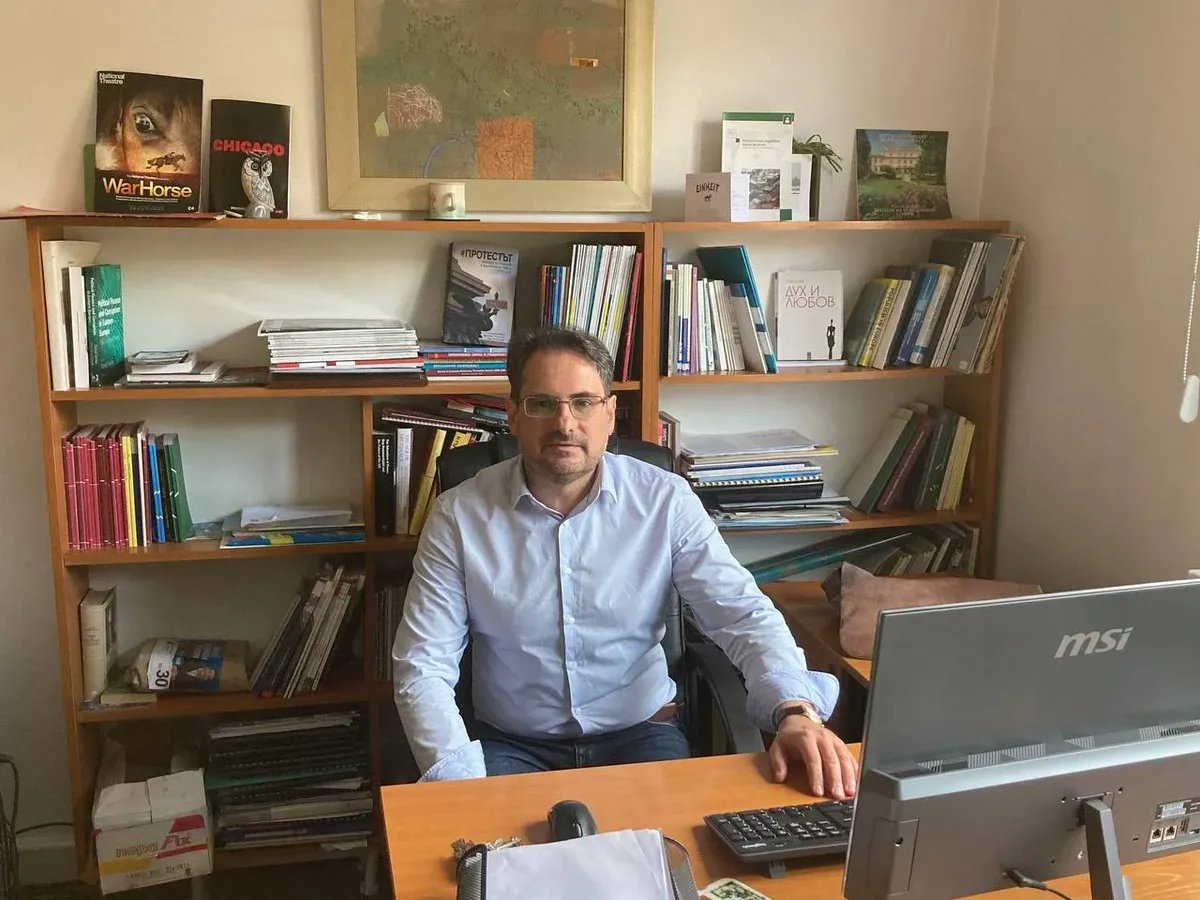
Daniel Smilov. Photo: Ilya Azar, exclusively for Novaya Gazeta Europe
Hristo Ivanov tells me this mindset and conduct is very typical for Bulgarians.
“We have this national reflex: we prefer to wait out [problems] and keep a low profile,” he smiles. “I am not saying this is very attractive, but it’s a fact.”
Former Bulgarian Ambassador to Russia Ilian Vassilev, who is less inclined to self-mocking humour, points out to me that, unlike Prague, Bulgaria has never seen thousands of demonstrators protesting against the EU and NATO.
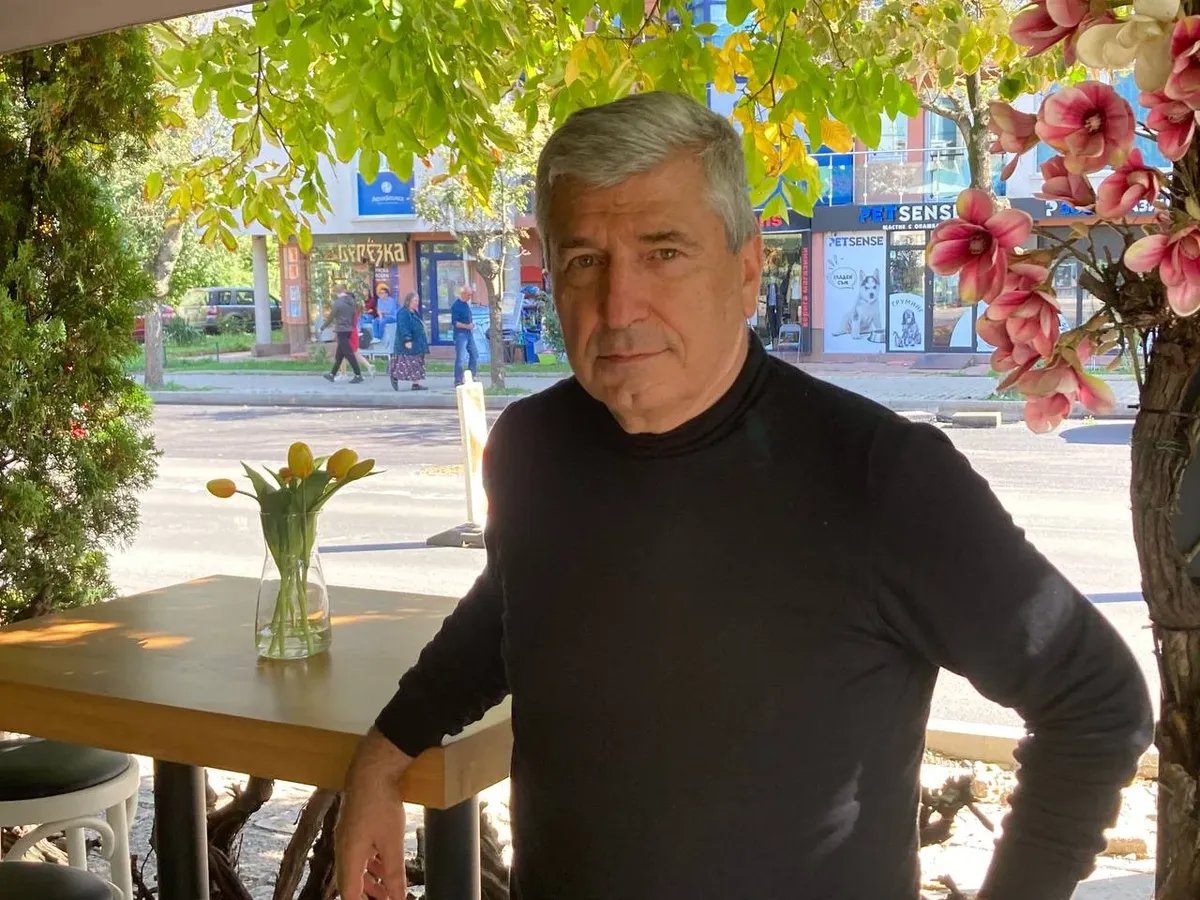
Ilian Vassilev. Photo: Ilya Azar, exclusively for Novaya Gazeta Europe
And yet the fact is that, from the start of the war up to November, Bulgaria refused to officially supply weapons to Ukraine, confining itself merely to providing “military-technical assistance”. On September 29, acting Bulgarian Defence Minister Dimitar Stoyanov reiterated in reply to a request for arms supplies from the Ukrainian ambassador that this would not happen.
Members of the parties making up the government coalition heaped all the blame on the Socialist Party, claiming that it threatened to quit the coalition, which would lead to the government’s resignation. As a result, the only party at the Bulgarian parliament that supported arms supplies to Ukraine was GERB, which had previously been accused of a pro-Russian course. Borisov might have possibly realised that supporting Ukraine rather than Russia is more beneficial in 2022, although journalist Djamdjieva, who called the Pumpkin the most pro-Ukrainian politician in Bulgaria, suggested that he “really thinks this way now”.
It is at the initiative of GERB (and Democratic Bulgaria) that the parliament voted in favour of official shipments of weapons to Ukraine.
Anyway, Bulgarian weapons had reached Ukraine even before that.
Euroaktiv reported on October 31 that Bulgaria supplied Ukraine with weapons worth 1 billion euros.
“Bulgaria is one of the largest exporters of ammunition and military equipment to Ukraine. They are simply shipped not directly but via Poland and Romania,” Smilov tells me.
Rumen Ovtcharov, Bulgaria’s energy minister in 1996–1997 and economy minister in 2005–2007, insists that the government cannot prohibit private contracts of weapons manufacturers.
“As a former economy minister, I know that, when a trader comes to you and presents a recipient certificate from Poland, you have absolutely no grounds to ban such a transaction,” he says.
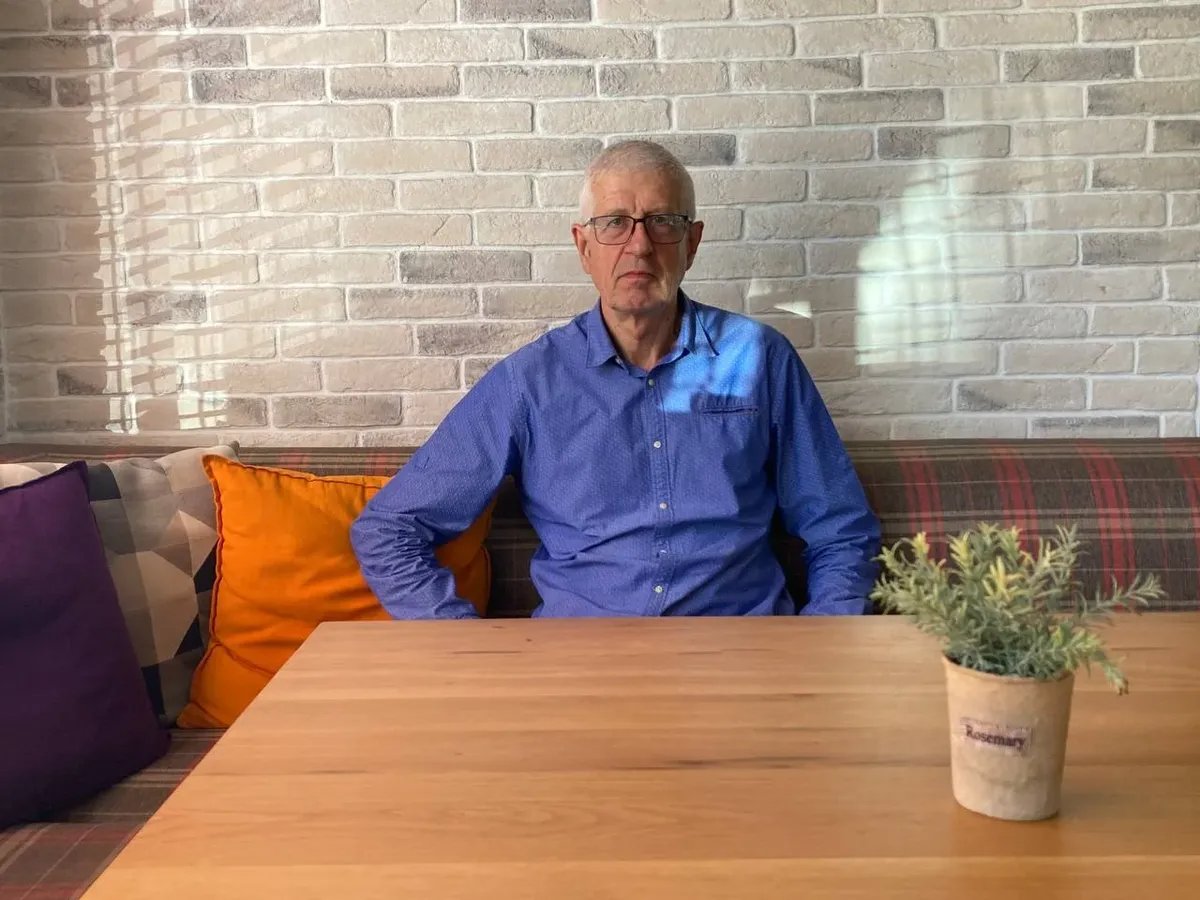
Rumen Ovtcharov. Photo: Ilya Azar, exclusively for Novaya Gazeta Europe
Ovtcharov tells me that, when Ukrainian Foreign Minister Dmytro Kuleba visited Bulgaria, met with leaders of parties, and urged them to vote for supplying weapons to Ukraine, the BSP firmly said no.
“This position can probably be described as pro-Russian, don’t you agree?” I ask Ovtcharov, who is a BSP member.
“No! I personally believe that Russia is not right as regards the war. In my view, entering Kharkiv the way they entered Idlib in Syria is absolutely unacceptable. We in the BSP are opposed to the war and favour the start of immediate negotiations to find a peaceful solution to the conflict. No weapons and no sanctions, because they don’t produce any results.”
“But if Ukraine is not helped with weapons, it’s going to lose,” I challenge him.
“And now both countries are losing,” Ovtcharov replies somewhat ambiguously and then starts uttering remarks that remind me of Russian propagandist Vladimir Solovyev and his TV show. By the way, as locals say, Russia’s Channel One (but not Rossiya-1) can still be watched in Bulgaria.
“If the U.S. and other Western countries were more realistic and noticed how the world is changing, they could react more pragmatically.
For instance, find some way to settle the situation in Donbas rather than bomb those people for eight years. When Russia attacks, that’s aggression and a human rights violation, but when the United States bombs Yugoslavia or invades Iraq or Afghanistan, is that really democratic and civilised?” Ovtcharov concludes his rant with a rhetorical question.
The ex-minister berates the former French and German leaders, François Hollande and Angela Merkel, for not compelling Ukraine to implement the Minsk Agreements and recalls how the U.S. ignored the deal signed between former Ukrainian President Viktor Yanukovych and the opposition on 23 February 2014 under the supervision of European leaders, which was supposed to settle Ukraine’s Maidan protests in a peaceful way.
“I see this narrative [in the West] that Russia blows up its own pipelines and bombs its nuclear power plants, and I am really amazed how dumb a person must be to believe that!” Ovtcharov exclaims.
He studied in Moscow, is a nuclear power plant operator by profession, and launched power units 3 and 4 of the Kozloduy NPP near Sofia.
Ovtcharov justifies the annexation of Crimea, as “there was a coup, and the people who came to power showed what policy they would pursue”. At the end of our conversation, he tells me a story of a former Ukrainian government minister he knows.
“He came to Bulgaria and said he wished to export grain and corn from Ukraine and open a pasta factory here. At some moment, he claimed that the Russians are like the Huns: they come, rob, and leave. Then I realised that, just like Russians are the Huns for Ukrainians, Bulgarians are the Huns for Macedonians. In much the same way that Ukraine didn’t want to make Russian an official language, the Macedonians are opposed to the Bulgarian language, even though perhaps 80% of the people in North Macedonia are related to Bulgaria, just as those living in Ukraine to Russia,” Ovtcharov reasons.
In his view, both Ukraine and North Macedonia “are constructing their new history through hatred toward a neighbouring state, and it’s clear that this algorithm was purposefully devised somewhere”.
Country of Russophiles
“We had this czar, Boris III, who joined Bulgaria with [the Axis powers] during WWII. He said that all bourgeoisie and businesspeople in Bulgaria were Anglophiles, all military officers Germanophiles, and all common people Russophiles. And that he himself was the only true Bulgarophile, even though being ethnically German,” Ovtcharov laughs. “Not very much has changed since then.”
But even despite Ovtcharov’s rhetoric, the Socialist Party can hardly be called the most pro-Russian one in Bulgaria. When I just arrived in Sofia and was walking by a shawarma kiosk, I heard a political ad from a loudspeaker installed there, which ended with the words: “Number 29. With Russia in the heart.” It turned out that was a slogan used during the election campaign by the party called Russophiles for the Revival of the Fatherland.
Its chairman, Nikolay Malinov, an unimposing man with bristling grey hair, is known for having been accused of spying for Russia in 2019. He was first arrested and then freed on bail. Moreover, he was allowed to travel to Moscow, where Putin personally awarded him with the Order of Friendship, which is given for “special merits in promoting peace, friendship, cooperation, and mutual respect between nations”.
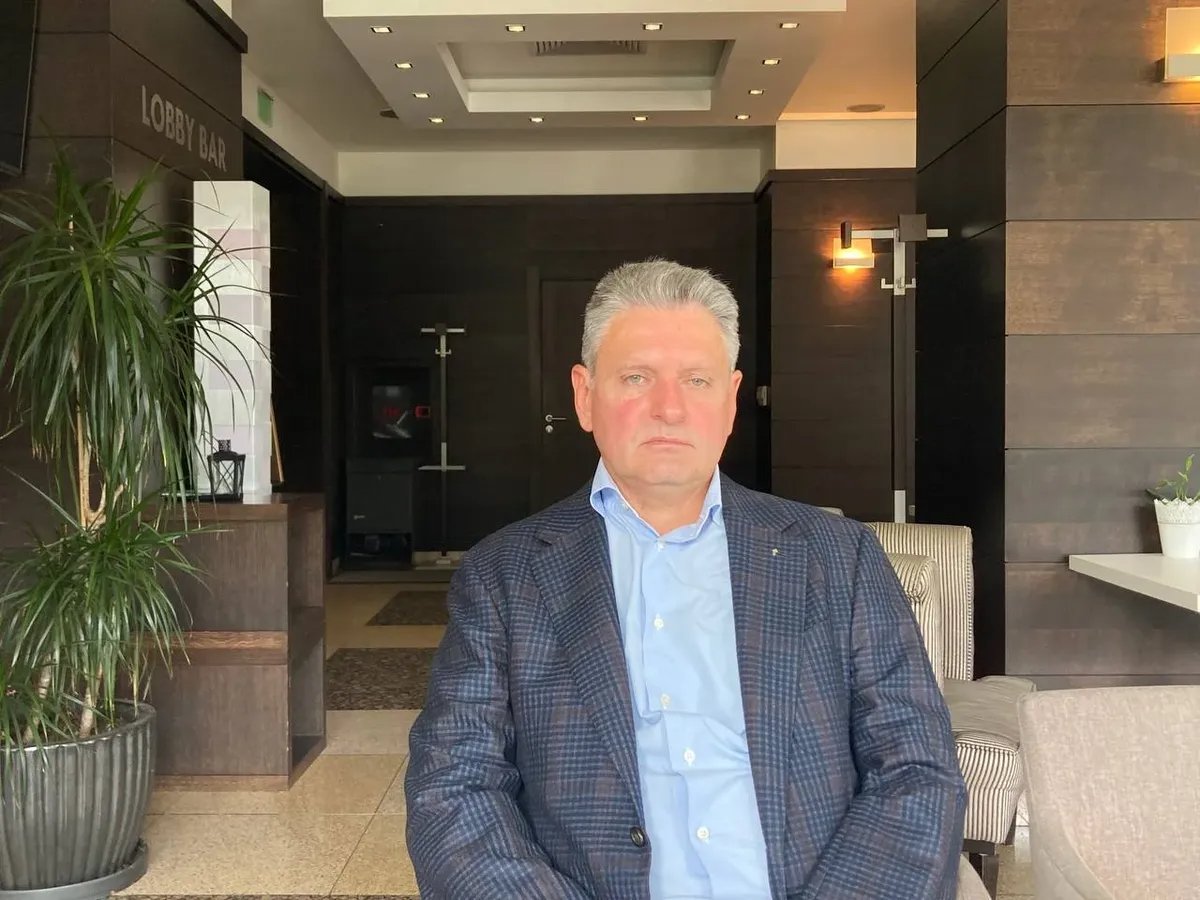
Nikolay Malinov. Photo: Ilya Azar, exclusively for Novaya Gazeta Europe
“I am on Russia’s side, and that’s why I call myself a Russophile. And I’ve received all my awards and taken all punishment for my civic position. I am not going to change it under any circumstances, no matter what my fate is. Bulgaria with Russia is an empire. And Bulgaria with America is a colony. Who on earth doesn’t understand that?” he asks me.
The non-governmental organisation called The Russophiles was founded in Bulgaria back in 2003.
“The first of its kind in the world!” Malinov tells me proudly. “We organise contests, exhibitions, festivals, and concerts. This year, 12,500 children took part in our contest under the motto ‘What is unquenchable cannot be put out’, and usually there are 35,000 of them! And we have five such contests.”
The Russophiles opened 258 Russian-language rooms in kindergartens and send over 300 students every year to Russia.
“We are like a parallel ministry of culture and foreign affairs!” he boasts. “Russophilia is an element of the archetype of Bulgarians, because we have the common Church Slavonic language in which we pray to God, because of Cyrillic letters, and because of traditional values. All of these are things that make a Bulgarian a Bulgarian, and this Slavonic Orthodox Bulgarianness can exist only in friendship with Russia,” Malinov goes on to say. “The model that Russia has proposed to humankind, namely traditional values, a strong state, and a multipolar world, is what can preserve Bulgaria in a turbulent and complex atmosphere, especially when Europe regularly shoots itself in the hand and in the foot, and is about to shoot itself in the head with this policy toward our sister Russia.”
Malinov insists that nearly 80% of Bulgarians are Russophiles, referring to a survey conducted by his organisation. For some reason, however, his party is not particularly popular with the voters and got only 0.25% of the vote in the election on October 4. Malinov has a very simple explanation for this paradox.
“Sixty-five percent of Bulgarians don’t go to vote, which creates a dissonance between the Bulgarian [pro-Western] political elite and the Bulgarian people’s real feelings.”
He points out that the Russian people themselves also voted for the “Russophobes” Mikhail Gorbachev and Boris Yeltsin.
“In order to build proper relations with the Russophile constituencies, we need media, huge funding, and international contacts, and all these mechanisms are fully controlled by the adversary,” Malinov reasons. “Even Russia hasn’t yet fully rid itself of this control, and despite all the right steps that have been made, the liberal-communist foam still beclouds the hearts and minds of Russian people.”
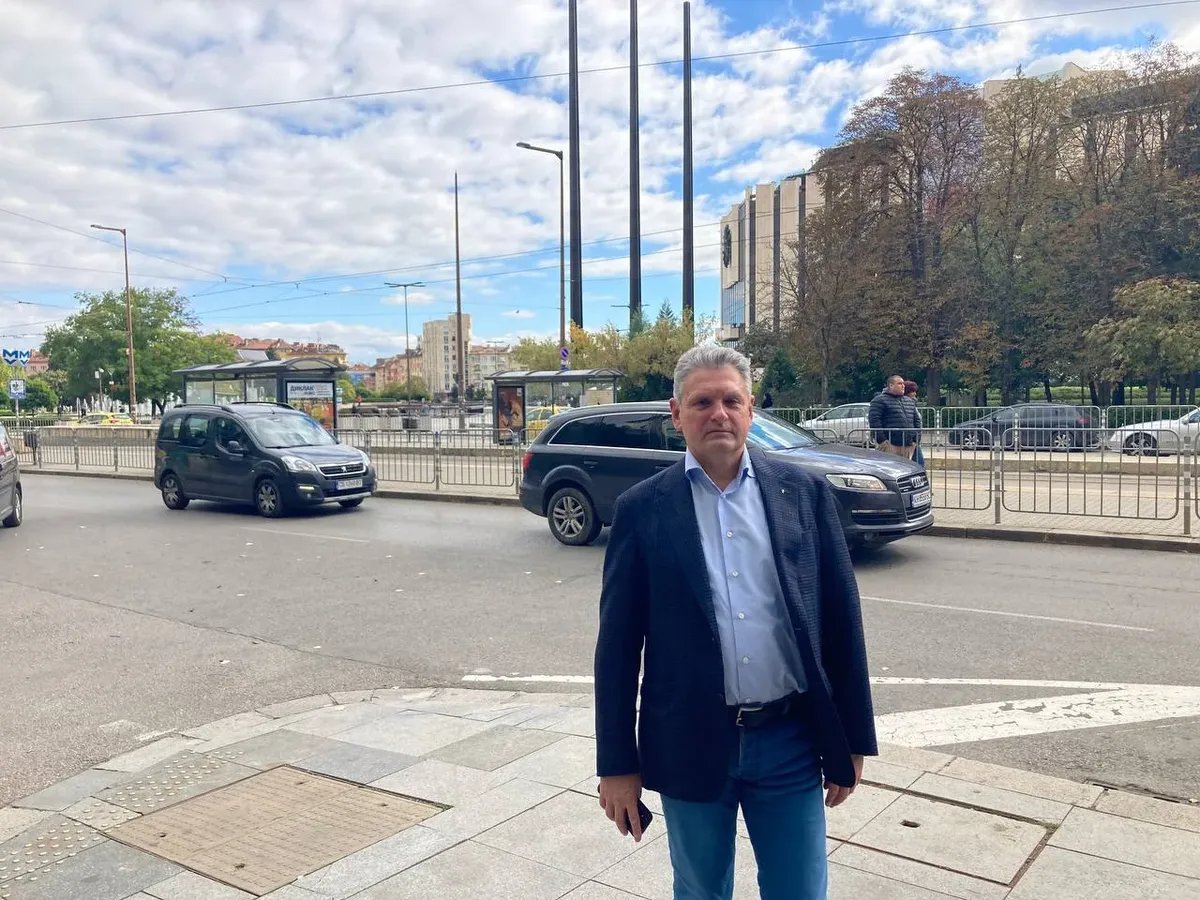
Photo: Ilya Azar, exclusively for Novaya Gazeta Europe
Malinov has never been able to organise successful resistance to the “adversary,” but he keeps on stoically “bearing my cross”.
“That’s what we are jailed and beaten for, and that’s why our families, homes, and firms get destroyed. Several years ago, we bought the fourth most popular television channel, but just the next day, 115 policemen came to us and completely stripped us of it,” says Manilov.
Just like Plevneliev, he is not overly modest and claims that the U.S. president later “personally berated the Bulgarian premier for letting me out of jail”.
To his critics believing that Bulgaria needs not Russophiles but Bulgarophiles, Malinov replies, “Being a Bulgarophile means loving yourself. And being a Russophile means loving your sister, your brother, or your mom.” He insists that he has never been paid in Russia for his activities, although he does not deny his close links to the Kremlin.
“I know that [Russian Foreign Minister Sergey] Lavrov, Putin, or [Federation Council Chair Valentina] Matviyenko see our efforts, judging from conversations I’ve regularly had with them. They see all of this. We are continuing to fight darkness by lighting up our tiny lights. As much as we can. Our cause is right, and in the long run, we’ll win anyway.”
Love is cruel
An elderly couple is wandering amongst busts and monuments created in the second half of the 20th century and currently exhibited at the Museum of Socialist Art. The woman in a weird flower-dotted bucket hat introduces herself as Bluma, an Israeli citizen, who emigrated from the Soviet Union back in 1971 but still speaks quite good Russian.
“Today is Yom Kippur, but we are not religious, and therefore, we’ve come to Sofia to walk around for a couple of days. There is a wonderful museum about Jews saved by Czar Boris in this city. And I simply recall my youth here! After all, I was a member of the Pioneer Organisation, but not a member of Komsomol,” Bluma explains to me.
She says that living in Soviet Lithuania was “impossible”, and she always felt as if “at gunpoint”.
“We fled, leaving everything behind, we paid a lot, but what counts most is that we managed to break away! When I heard German speech in Austria, which I hated, I realised that we were finally free,” Bluma says.
“What do you think of the current war?”
“Horrible!” she replies instantly. “But Russians are not always to blame. I am not a big fan of Putin, but Biden cornered him. If Trump had stayed in the office, what are you talking about, what Ukraine? Biden is just a moron, it’s the first time I see such president in America.
“After all, it’s Putin who started the war…”
“Putin did start it, indeed, but there was a chance for a compromise. Believe me, my heart aches both for Russians and for Ukrainians,” Bluma tells me and walks away to watch the rest of the monuments to Lenin and the first communist Bulgarian leader Georgi Dimitrov.
It is widely believed that Bulgarians particularly liked it to be part of the socialist bloc. Todor Zhivkov, secretary general of the Bulgarian Communist Party’s Central Committee, who ruled the country for 35 years, even submitted an application to make Bulgaria the 16th Soviet republic. The Museum of Socialist Art keeps quite a few artefacts depicting Zhivkov and Soviet leader Leonid Brezhnev, like, for instance, a carpet with their portraits and an inscription saying “Friendship for centuries”.
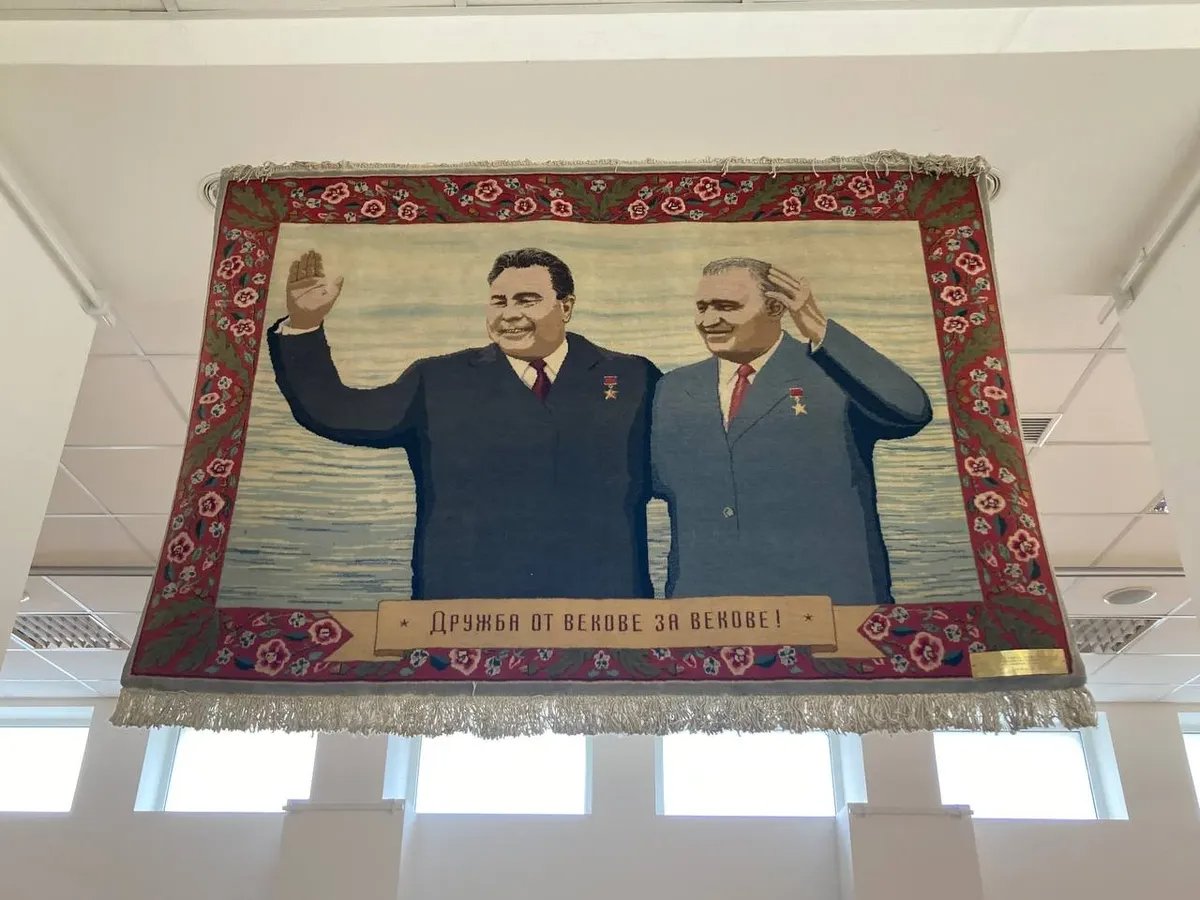
Carpet at the Museum of Socialist Art. Photo: Ilya Azar, exclusively for Novaya Gazeta Europe
No surprise, socialist Ovtcharov shares this opinion.
“We never had any problems with the Soviet Union. We’ve always treated Russians very well, both during the Soviet period and after it.”
Indeed, everyone knows about the uprising in Hungary in 1956, not to mention that in Prague in 1968 (both crushed by Soviet troops), and Bulgaria looks like an obedient vassal in comparison with them.
However, former Bulgarian Ambassador to Russia Vassilev strongly disagrees. He tells me that the Goryani movement resisted the communist regime up to 1956. The armed resistance was catalysed by collectivisation and “people’s tribunals” of the 1940s, at which Bulgarian communists convicted more than 9,000 people, sentencing 2,680 of them to death.
Journalist Indhzev, the author of the book titled Techna Druzhba (meaning literally Fluid Friendship, which is a play on words sounding similar to Vechna Druzhba, meaning Eternal Friendship), says that the Goryani movement is probably the best protected secret of Bulgarian history.
“Like in western Ukraine, Bulgaria saw the longest-standing armed anti-communist resistance following WWII. They fought the regime and hoped to receive support from the West but never got it,” Indzhev says regrettably.
In Vassilev’s view, Todor Zhivkov was “a clever guy who created an illusion for the Russians that everyone in Bulgaria embraced communism, because he thought that Moscow would leave him some room for manoeuvre because of that”. In the end, Indzhev admits, “the regime managed to create its own elite, and the voices of opponents were no longer heard, and therefore, resistance to the regime vanished by the 1970s, Bulgarians were completely disappointed and didn’t believe that they would have a different government one day.”
Democratic Bulgaria co-chairman Ivanov recalls that the fall of socialism looked like a setback rather than the start of something wonderful to most Bulgarians.
“The transition was very hard. That wasn’t anything similar to the Czech Republic, which recovered quickly and lived better than in 1989 as early as in 1995. Bulgaria caught up with the 1989 standards only by 2005, that is, we regretted losing something for 15 years. Russia is a nostalgic dominant, because we simply have too many losers,” Ivanov says.
Special devotion to Russia shared by most Bulgarians is rooted back in the 19th century, as they consider it their liberator from the Ottoman Empire. This is why there is a monument to Russian Emperor Alexander II in central Sofia.
“That’s perhaps owing to our upbringing and to what we were taught in school. All of us were told that Russians are our liberators and our elder brothers. Our more adult citizens have this notion ingrained in their minds,” says journalist Djamdjieva.
Similar languages and the same religion contribute to a special relationship between Bulgaria and Russia.
Daniel Mitov, who served as Bulgarian foreign minister in 2014–2017 and who is currently one of GERB’s leaders and the main candidate for premiership if a coalition is set up, confirms that Bulgarians have “very friendly” attitudes toward Russia, which “sometimes may go as far as vindicating the idiocy of Putin and the Kremlin oligarchs”.
“That’s also because of the history of our liberation from the Ottoman Empire, and of course, communism left a very severe propaganda imprint. Finally, Russian propaganda has been here absolutely everywhere in the past 10–12 years, and so now we need to work hard to make sure that everyone can tell the truth from what they hear from [Russian TV propagandists Margarita] Simonyan and [Olga] Skabeyeva.”
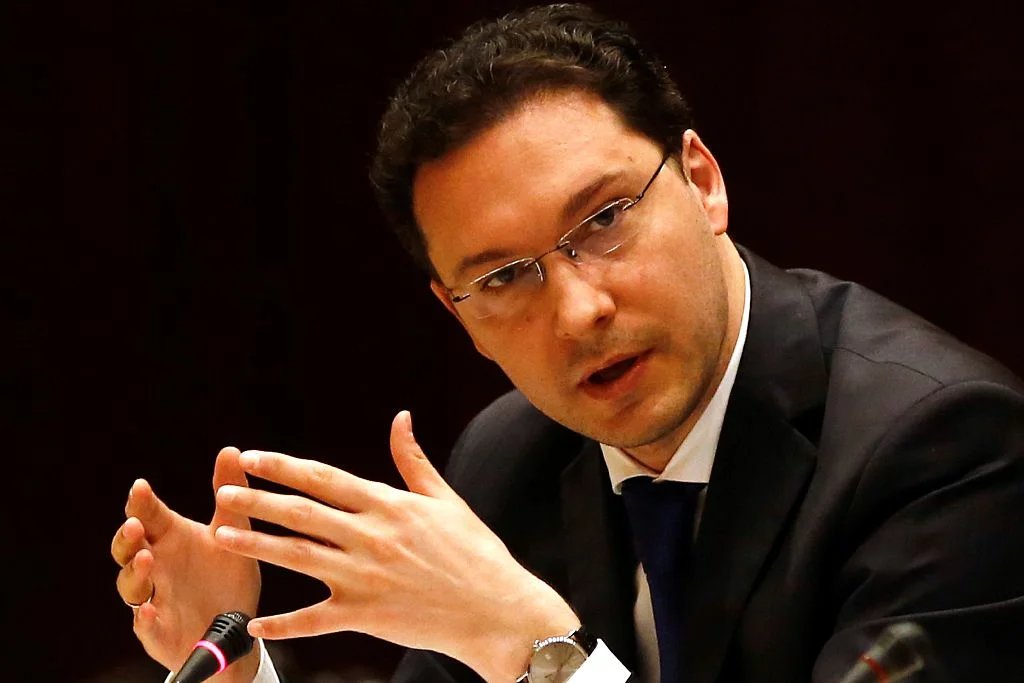
Daniel Mitov. Photo: Ayhan Mehmet / Anadolu Agency / Getty Images
Indzhev insists that “it’s wrong to keep recalling what happened in the 19th century and transfer that to the contemporary era, describing Putin as Bulgaria’s liberator from Western oppression.”
“Moreover, Bulgarian revolutionaries in the 19th century knew very well that Russia was nothing better than the Ottoman Empire. They knew that Russia was a ‘prison of nations’. After all, a lot of them had been expelled from Russia for supporting the Polish revolution,” he says.
It should be admitted that Russian propaganda has long preferred to call Bulgarians “self-interested friends“ at best and traitors at worst, arguing that they forgot about historical friendship with Russia, and what is more, were Germany’s allies in both world wars of the 20th century (which is true).
“Do you think any Bulgarians are fighting on the Russian side, as well?” I ask Ivan Kalchev, who fought for Ukraine.
“I am sure there are none.”
“But does anyone among the Bulgarian public support Russia?”
“I personally haven’t seen such people! Perhaps they hide in basements when they see me coming from around of the corner,” Kalchev laughs. “True, many on Facebook are very brave and write that they’ll kill me with their own hands when I show up in their village. People have been brainwashed since kindergarten and school, where they are still taught a primitive type of nationalism: ‘We are a small but a proud nation, all the great powers were against us, the Turks oppressed us for 500 years, and Russia liberated us’.”
Support independent journalism
All independent media have been banned in Russia which makes our work not only challenging but outright dangerous. We need your support.
Kalchev actually claims that those in the Russian army who liberated Bulgaria were mainly Ukrainians.
“I’ve just met a couple of people in Ukraine saying that their grandfathers fought in the Bulgarian war of liberation against the Turks, and I’ve never heard anything of the sort from Russians.”
Kalchev himself admits that he has nothing against Russians, keeps rereading novels by Arkady and Boris Strugatsky from time to time, and listens to Russian rock.
“I also discussed it with Ukrainians that literature and music can’t be blamed for the war. It’s just a clash of civilisations, according to Huntington’s classical definition,” he says.
A burnt passport
It is a common perception among Russian activists who have moved to Bulgaria that many Bulgarian public officials and special service officers at least have a liking for the Kremlin, if not actually work for it. For example, Russian citizen Alexei Alchin living in Varna thinks so. He publicly burnt his Russian passport at a protest rally in support of Ukraine in Varna on February 26. Soon afterwards, Russia issued an extradition warrant for him, charging him with tax fraud amounting to over 280 million rubles (€4.5m). He is sure it was the burnt passport that triggered his prosecution.
As a matter of fact, Alchin is not a typical opposition activist. Before departing Russia, he had not participated in rallies and never wrote anti-Putin posts on social media. Moreover, he worked at the Russian Federal Antimonopoly Service at the end of the 1990s.
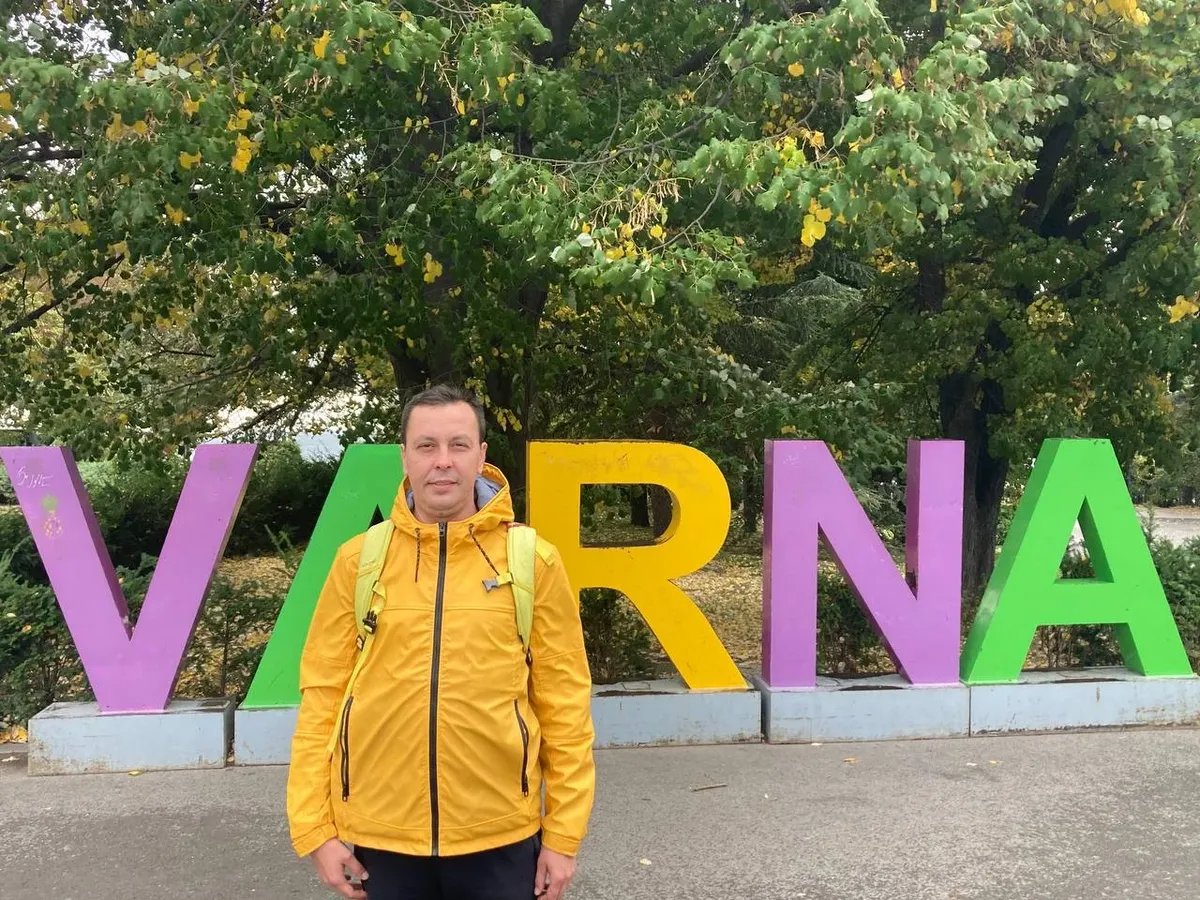
Alexei Alchin. Photo: Ilya Azar, exclusively for Novaya Gazeta Europe
“I had a conflict with [Antimonopoly Service chief Igor] Artemyev. I travelled to Europe to study the record of their antimonopoly legislation and brought back some ideas as to how to implement their best practices. I drafted amendments to our antimonopoly laws to increase the fines up to 10% of sales and proposed ways making it impossible to accept bribes,” says Alchin, with whom I meet at a café in a pedestrian zone in Varna.
On the façade of an abandoned hotel called Odesos, there is a banner saying Peace for Ukraine. No War, which is quite a rare occasion for Bulgaria.
Alchin says Artemyev did not accept his ideas, and he resigned. After that, Alchin was invited to the presidential office, but he eventually ended up at the State Duma, at the chancellery of the Economic Policy Committee led by the obnoxious lawmaker Yevgeny Fyodorov, where he did not stay for too long, either. “Fyodorov once gave me 6 million rubles (€95,000), which I was supposed to take to Saratov and pay for purchasing a flat there. Just imagine: you’re carrying this money and are stopped, say, at the airport — and how’re you going to explain it?”
That is when Alchin finally realised that “politics is a dirty thing.”
“When I began working at the Antimonopoly Ministry, I was very naïve and thought that law is law, but after the State Duma, I came to understand that, either you do what your superiors tell you to do, or you don’t work,” he says.
Having become disillusioned, Alchin started doing business, arranging platinum deliveries to Europe. As he was also fond of martial arts, he frequently travelled to Europe for competitions and training. Coming once to Bulgaria, Alchin realised that he liked this country. “I recovered my peace of mind here, everything is culturally familiar in this country, and the local people are very calm and never rush anywhere, and it’s unlikely that you’ll ever see a Bulgarian shouting at their children.”
He was granted a residence permit in Bulgaria as a trade representative of a Kyiv-based company.
It is only here that Alchin came to understand that “it’s necessary to be more active, including informationally”. While in emigration, he started to write social media posts.
“I was really amazed at first that people here can freely voice their position at protest rallies. Nobody gets busted, persecuted, or sacked,” Alchin says.
The first two courts in Varna, where Alchin lived for more than five years, ruled to extradite him.
“Defence lawyers, police officers, and even court bailiffs were surprised at the court ruling! The prosecutor was acting quite aggressively, and the courts of the first and second instance flatly dismissed any evidence in my favour,” Alchin said.
The prosecutors had a very firm conviction that “the Russian justice system can be trusted, because there is democracy there,” and all they needed was a guarantee from the Russian prosecutor general that there are no politically-motivated prosecutions and no torture in Russia.
Alchin presented documents from Russian tax agencies that he had no unpaid debts, but the court did not care. What ultimately saved Alchin is protests arranged by local Russian activists, and Gennady Gudkov also pulled some strings.
“The parliament, all possible human rights organisations, the judicial community, the prosecutors — we made as much noise as we only could,” Gudkov says.
In the end, an appeals court overturned the ruling ordering Alchin’s extradition. He believes his story can be explained by the fact that there are numerous supporters of Russia and Putin among Bulgarian officials.
“Most of the people in the government, especially in the law enforcement and security agencies, are linked to Russian business, and as court bailiffs told me, I should understand that, just like in Russia, courts here do what the prosecutors want them to do,”
Alchin says.
Local activist Petar Tanev agrees with him.
“References that officers of Bulgarian special services compose about Russia have nothing in common with the reality. Therefore, it’s virtually impossible for Russians to receive political asylum in Bulgaria, and 99% of such applications are rejected. They grant it to Syrians, but they reply to Russian citizens that, in Russia, they can “defend their rights, and therefore, not everything is so bad.” They once even referred to the fact that there is the Liberal-Democratic Party in Russia!” Tanev laughs.
Former Foreign Minister Mitov from GERB sticks to the viewpoint, which is quite widespread in Eastern Europe, that Russians need to be screened.
“I support it that everyone who has been part of Russian opposition, like journalists and other people openly criticising the regime, should be able to leave for the West. However, I witnessed myself a Russian man who fled mobilisation but fervently defended the Kremlin’s narrative that Ukraine is a failed state and needs to be denazified,” Mitov says, suggesting that such people must not be allowed to leave Russia.
Anyway, for instance, ex-President Plevneliev’s attitude toward Russians having to live under dictatorship is limited to mere sympathy.
“I hope they’ll be free one day, and I view those who fight the regime as heroes,” he says.
As for Alchin, after winning the appeal hearing, he applied for political asylum in Bulgaria. In the meantime, he is relaxing on the Black Sea shore and reflecting on Russia’s possible future.
“Putin breached an informal contract between the government and the people, but the problem is, there is no codified liability for this violation. That said, it’s very hard to consolidate society on this huge territory, considering ethnic and cultural differences. How can you build relations between the leadership and the people in Russia, after all?”
“Did this whole story sour you on Bulgaria?” I ask him.
“No, I still understand that there’s a democratic process in this country and I should oppose Russia’s influence here,” says Alchin, who is currently affiliated in Bulgaria with Gennady Gudkov’s movement For Free Russia.
Symbols of discord
The mixed feelings that Bulgarians have toward Russia can be illustrated by the fate of the behemoth Soviet monuments erected in Bulgaria during the socialist era. The best known of them are Alyosha in Plovdiv and a monument to the Soviet Army in central Sofia.
Hearing my question about monuments, journalist Djamdjieva starts humming the once popular Soviet song about Alyosha, a gigantic statue of a Soviet soldier in Plovdiv, and then tells me that the democratic community in Sofia has long been campaigning unsuccessfully for removing the monument to the Soviet Army from the capital’s centre.
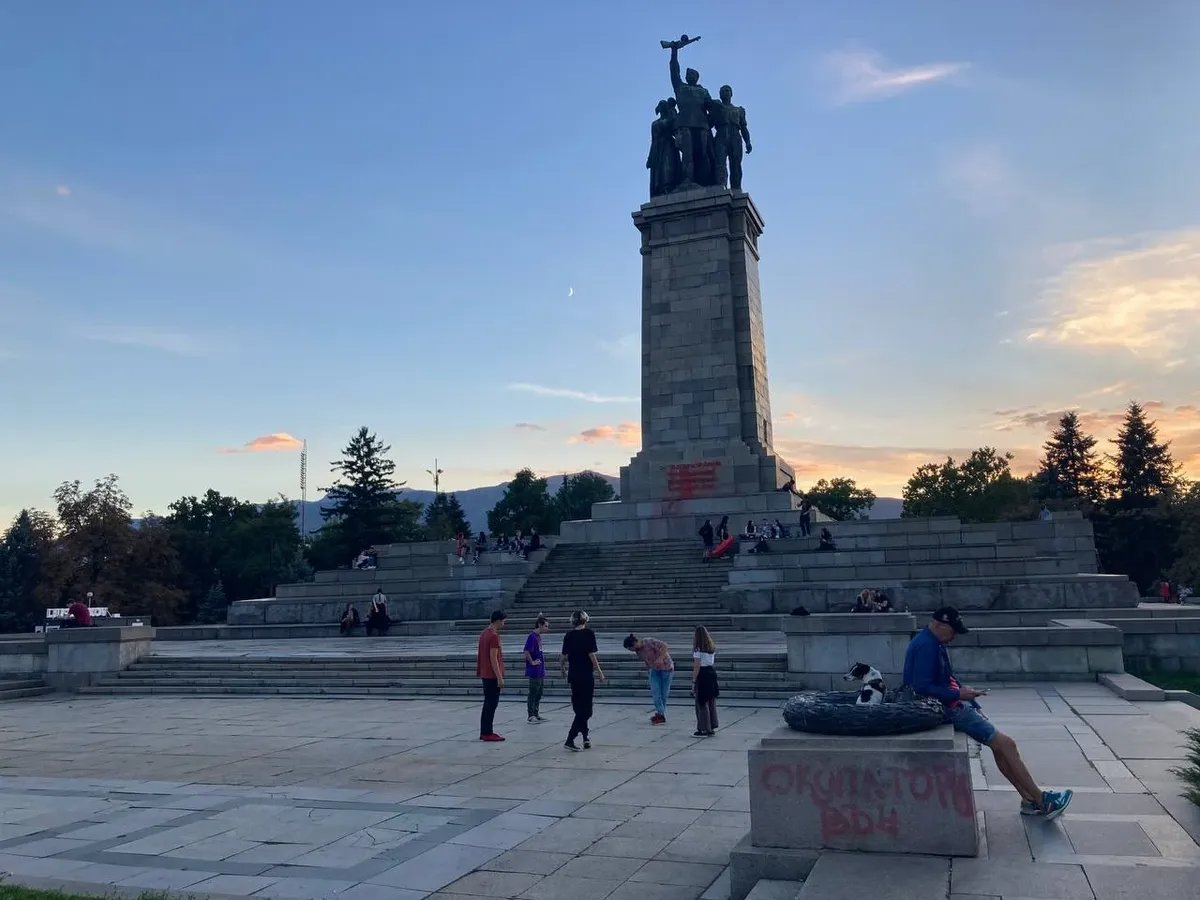
Monument to the Soviet Army in Sofia. Photo: Ilya Azar, exclusively for Novaya Gazeta Europe
“The Russian embassy and the Russian leadership have reacted very harshly to those plans, and our officials have always backtracked, for we were dependent on Russian gas,” she says.
According to Ivanov from the Democratic Party, the mayor of Sofia from the GERB party never wanted that.
“And besides, we don’t like ‘extremism’ here in Bulgaria, and therefore, [there is no such desire] even among the people who are not really pro-Russian. There are also too many timid people, who think that the U.S. is so far away and doesn’t really care about Bulgaria, but Russia is nearby, and we shouldn’t yank its tail,” he says.
In October 2022, I see red paint thrown over the monument to the Soviet Army in Sofia and the words ‘Occupiers, out!’ on its fence. Unlike in the Baltic countries, where no discussion is possible on whether the Soviet occupation of Lithuania, Latvia, and Estonia was preceded by their liberation from the Nazis, not everything is so definite in Bulgaria. The post-WWII period is never officially described as occupation — technically because there were no Soviet troops in Bulgaria after 1947, and informally, to avoid sowing discord in society.
“I am a big opponent of the ‘liberation’ theory and these monuments in town centres. We were occupied, and I’d move the monuments to a museum, where people could see communist and fascist propaganda,” former President Plevneliev says.
“Did you try to do that yourself?”
“I’d be happy to see a result in court, where civil society would file such a motion.”
“But you were president! Why didn’t you do anything?”
“I did a lot!” Plevneliev retorts. “My predecessor, President Parvanov [from 2002 to 2012], said only that Russia liberated us, but I reiterated in every speech that Bulgaria was occupied after WWII, and I also visited the monument to the victims of the communist regime every year, which my successor [Rumen] Radev has never done in six years.”
Former Bulgarian Ambassador to Russia Vassilev is also outraged by the presence of Soviet monuments in his country.
“No Soviet soldiers were killed in Bulgaria! International law absolutely unconditionally allows having monuments on burial places. But here, in the centre of Sofia, who’s that monument dedicated to? No one was killed, after all. It’s just a symbol of the Soviet Union’s domination over Bulgaria.” He is sure that the monuments would be removed in the future. “At least because they are ugly, that’s not Michelangelo. Secondly, it’s just humiliating for Bulgarians. The [monument to the] main Bulgarian hero, [Vasil] Levski right near Alyosha, is much smaller.”
“We’ll tear them down,” Mitov from GERB says reassuringly. “This is one of my personal missions, so to speak.”
“But why has this still not been done?”
“Bulgarians don’t like confrontation. And in general, it looks like the view that history should be cherished was prevalent here before the war in Ukraine.
Public opinion was opposed to that, but now there are enough people who understand why this needs to be done,” the former Bulgarian top diplomat tells me confidently.
Malinov’s The Russophiles vow to defend the monuments.
“We’ll resist. We collected 54,000 signatures in support of the monument in Sofia in 2013. Every generation has its own battles, and we’ve had to fight Ukies [derogatory term for Ukrainians] in the street here, when they were approaching us with their banners to punish us for defending the monuments,” Malinov says.
In his words, the ‘adversary’ has also tried to attack other symbols of friendship between Bulgaria and Russia, including proposals that the Alexander Nevsky Cathedral and Count Ignatiev Street in Sofia be renamed somehow.
Anti-vax populism
Even though The Russophiles failed in the elections, other pro-Russian parties performed quite successfully. For instance, the radical right party Revival garnered 5% more than it did in the previous elections. Gennady Gudkov believes Revival receives a significant part of its financing through various pro-Russian front firms and Bulgarian energy companies, which were bought by the Kremlin long ago. Journalist Indhzev is also sure that the Kremlin pays pro-Russian groups. For instance, he says citing his sources that Moscow paid 20 million euros to Bulgarian NGOs for supporting a campaign for building the Belene nuclear power plant.
Lena Borislavova, spokesperson for former Prime Minister Petkov, claimed in July that Russia pays about 2,000 euros to journalists and politicians spreading Kremlin propaganda.
Former Bulgarian Ambassador to Russia Ilian Vassilev, with whom I meet near the chain store of Russian foodstuffs called Beryozka, or Birch Tree, where you can buy vodka, caviar, dumplings, buckwheat and a lot of other traditional Russian food products, insists that the number of Bulgarians who “believe in Russia ideologically” and “love it gratuitously” is under 10%, while the rest do it for money.
“It’s true that about 30% of our GDP is owing to capitals linked directly or indirectly to businesspeople or tycoons from Russia. However, Russophile groups turn the myth of Putin’s overwhelming support among Bulgarians into a product they can sell to the Kremlin. They trade these myths very well, receiving a good share of Gazprom’s or Lukoil’s incomes in exchange,” he said.
“Revival has two priorities. Firstly, make Bulgaria independent from the EU, and it’s Putin’s old dream to use Bulgaria as a Trojan horse to destroy the EU. Secondly, improve relations with Russia, even though they introduce themselves as Bulgarian patriots,” Indzhev says.
“The Revival party is routinely described as nationalist, but in my view, they are Putin’s fifth column. The Italian rightists are at least opposed to Russia’s invasion of Ukraine, but Revival supports Putin’s Russia. You can call them ultra-rightists, but at the same time, Russophiles,” political scientist Smilov says.
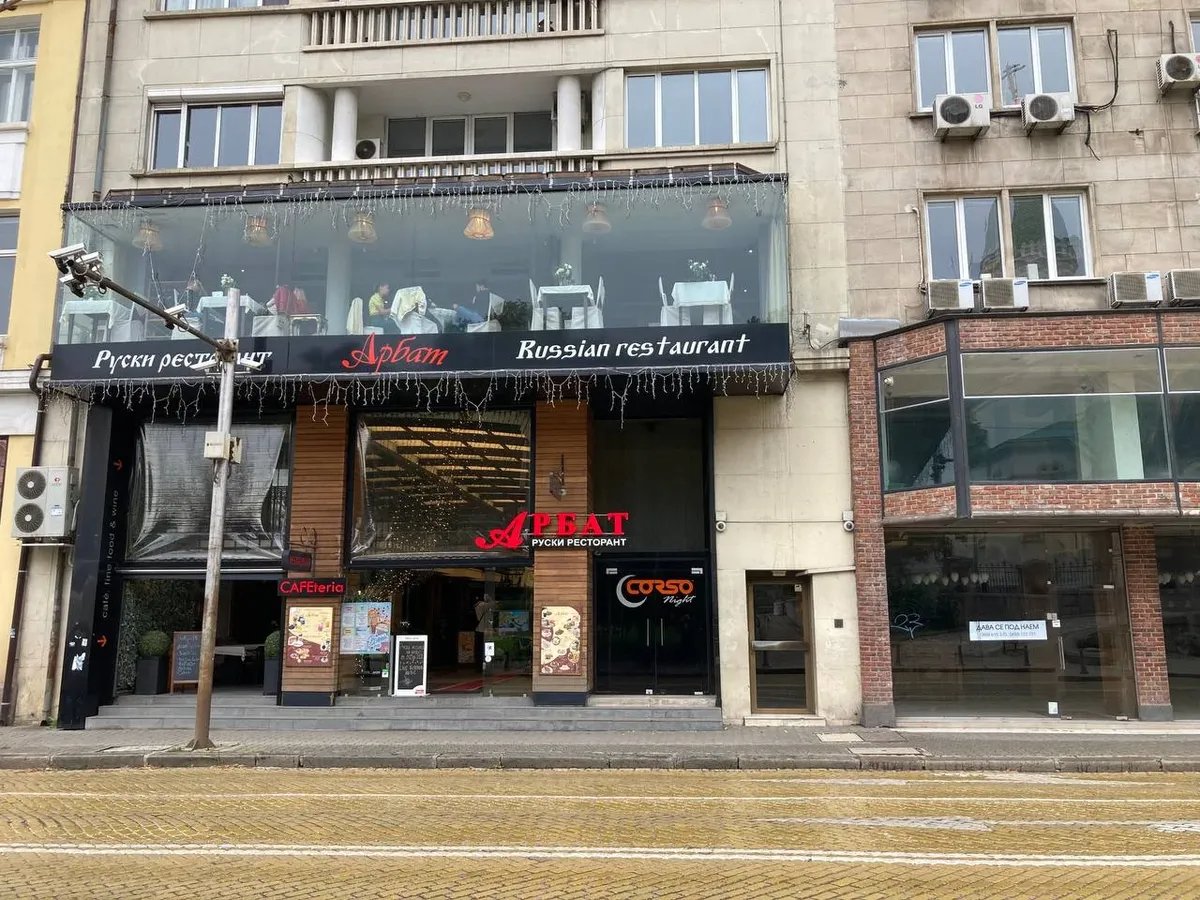
Photo: Ilya Azar, exclusively for Novaya Gazeta Europe
Revival representatives refused to give an interview to Novaya-Europe.
Another important Bulgarian figure criticised for warm feelings toward the Kremlin is incumbent President Rumen Radev. He has said in the past that Crimea is Russian, and he recently objected to Ukraine’s swift accession to NATO.
“He is ideologically oriented toward Russia, and it’s good that Bulgaria is a parliamentary republic, but his clout is growing while there is no stable government,” Smilov says.
Ex-President Plevneliev describes it as a tragedy for Bulgaria that the parties that support the country’s Euro-Atlantic course and got in aggregate 80% of the vote in the last election cannot consolidate to address complicated issues because they do not trust each other.
“To me, Putin is a fascist, because he denies the right of Ukrainians to have their own country. Hitler did the same to Jews and others. And here it is, a pro-Putin, hence a pro-fascist, party emerging in Bulgaria just because pro-European parties are incapable of governing the country!” Plevneliev exclaims in outrage.
Plevneliev attributes the growing support for pro-Russian parties to their unbridled populism rather than their pro-Russian rhetoric as such. In his words, Revival leader Kostadin Kostadinov, as a true populist, tells different people exactly what they want to hear.
“He refused to wear a face mask at the parliament, and just like President Radev, he didn’t use the word ‘virus’ for a year and a half, because he is flirting with anti-vaxxers,” Plevneliev says.
In the view of Ivanov, a liberal politician from Democratic Bulgaria, not only Putin’s admirers vote for Revival.
“The number of Revival supporters has grown dramatically in the West, in America. These are not people who study in Russian universities or work at construction sites in the new part of Moscow. They simply hate the system as such. However, Putin is a champion to everyone who likes giving America the finger just to feed their ego. And this group is bigger than the people saying that they love Russia. I guess there might potentially be 70% of such people in Bulgaria. I am not saying that Revival will actually get 70% of the vote, but it’s clear they have room for growth,” Ivanov says.
“How come you have so many anti-vaxxers?” I ask Ivanov in surprise.
“The core of anti-vaxxers is personal doctors. Most of them are nearing retirement age, feel themselves disadvantaged, and are exploring ways to resist. Those doctors decided for some reason that they should oppose the anti-coronavirus policy and managed to mobilise broad strata of society. Revival took advantage of those sentiments very skilfully,” Ivanov replies.
He described Putin’s speech on the day of signing documents on the annexation of the new Ukrainian territories as essentially a manifesto.
“In my view, he has considerably changed the doctrine of the war in Ukraine. It started with raising questions like guarantees for Russia that NATO would not approach Russian borders, then there were fascists in Ukraine, but this works only for consolidating people inside Russia, and nobody in Bulgaria cares about that,” Ivanov says. “But as gay people, the gender problem, and the West’s moral decay suddenly replaced fascists, people here understand this very well. This marks the start of a phase in which Putin is going to actively spread propaganda in Eastern Europe.”
Russian Bulgarian
Petar Tanev, a 22-year-old activist of the movement For a Free Russia, has taken on the heavy burden of opposing the opinion of Putin as a liberator, which is quite widespread in Bulgaria.
“There are lots of Russophiles in Bulgaria, and I have no objections to that. For instance, I love Italy, and therefore, I can call myself an Italophile. However, that doesn’t mean that I’ll support politicians like Giorgia Meloni [new Italian prime minister and leader of the right-wing political party Brothers of Italy],” Tanev says.
He was born in Bulgaria, his father is Bulgarian, and his mother is Russian. Tanev has a Bulgarian passport, but as long as he remembers himself, he has lived together with his mother, who returned to Russia back in 2009.
In February 2022, Tanev came back to Sofia and immediately started acting in his home country. He sees his mission as explaining to Bulgarians that Russia and Putin are not the same.
“Because of Russian propaganda, Bulgarians can’t imagine Russia without Putin and say that he is defending conservative values so as not to let his country plunge into a Western rainbow-coloured morass,” Tanev says.
He says that, before he came to Bulgaria, Russian opposition members were absolutely unpopular there.
Despite his young age and the fact that he came to Bulgaria very recently, Tanev has become a fixture in Bulgarian radio and TV shows, owing to his natural affability and proactivity, as well as to a white-blue-white flag, which the new Russian emigration has made its symbol since the start of the war.
“I like this symbol very much myself. I remember feeling a surge of patriotism toward the movement that consolidated Russian people. I had never experienced anything like that before. I didn’t feel like taking the official Russian tricolour into my hands. I had some strange negative emotions when I simply saw that flag,” he says.
When he appeared at the first anti-war rally in Sofia, everyone started asking him what kind of flag it was. Tanev would not like to answer everyone the same thing, and so he came up with a more elegant decision.
“I began shouting slogans like ‘Russia without Putin!’ or ‘Russia is not Putin!’ in Bulgarian. That was something new to the people. They had never heard anything of the sort, and therefore, they were getting increasingly more interested.”
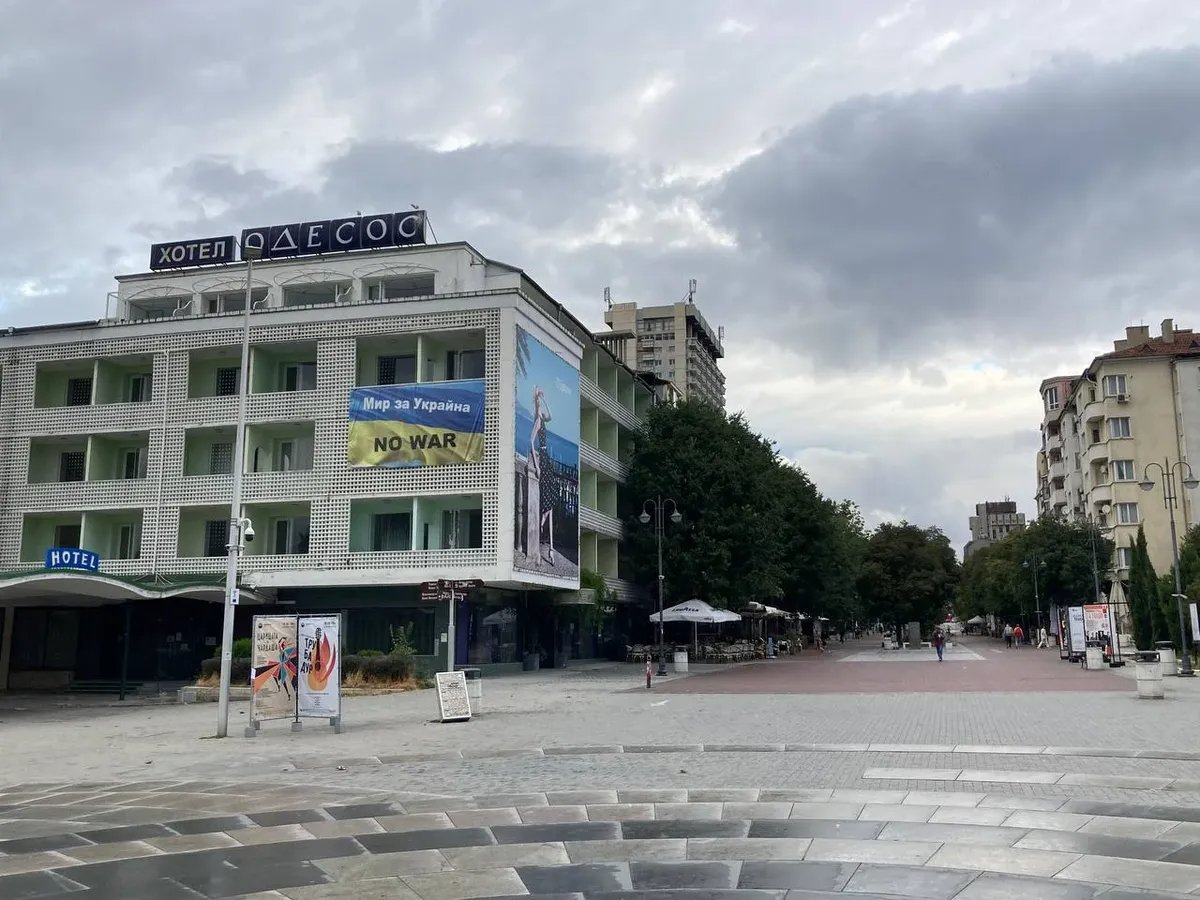
Photo: Ilya Azar, exclusively for Novaya Gazeta Europe
He always has a badge with this flag pinned to his lapel, and he keeps an Instagram account of the flag with 9,000 subscribers. Tanev proudly shows me a picture of a man with a huge white-blue-white flag wrapped around his shoulders.
“I saw him at a rally and thought it was one of our people, but it turned out he was an ordinary Bulgarian who got enthusiastic about our flag idea,” says Tanev. “And I know that it’s only Russians who join rallies in other diasporas.”
Tanev admits that the movement managed to do the impossible at the rally in support of Alchin, as there were only two Russians among the protesters, while the rest were Bulgarians. Now he is planning to arrange a street exhibition of Russian opposition, which he has already cleared with a local lawmaker.
Tanev radiates confidence and insists that, following his TV and radio appearances, Russophiles in Bulgaria “have come to understand gradually that, in fact, the main Russophobe is Vladimir Putin, as he has ruined the fates of hundreds of thousands of Russians and set everyone against Russian citizens.” He admits that it was hard to do, and many in Bulgaria still call him a Russophobe and “a traitor of the homeland,” which sounds in Bulgarian more like “an apostate of his kin.”
The secret of Tanev’s success is simple.
“I figured out that I am a man who represents both Russia and Bulgaria, and Bulgarians are more likely to listen to their compatriot than someone else. Small countries like it very much to be proud of their citizens who are staying or have lived abroad,” he says.
The Russian opposition does not yet have that many activists in Bulgaria. Tanev says there are about 30 of them in Sofia and some 20 in Varna and Burgas each. However, Tanev immediately began receiving invitations to speak not only on TV and radio shows, but also at rallies organised by We Continue the Change and Democratic Bulgaria. As a person representing Russian opposition, he explains to Bulgarian democrats what reasoning they should use in debates with local Putin lovers.
While in Russia, Tanev was also engaged in protests, although he could only dream of being as famous at the time as he is now (which he apparently did). He worked for Maxim Kats’s City Projects and was a member of the Yabloko party. He even planned to run for the State Duma in 2021, but after giving it a second thought, he decided not to renounce his Bulgarian citizenship.
“That’s nonsense! I don’t want to lose my ties with the European Union. After all, I am an absolutely Euro-Atlantic person. It’s always been my goal to popularise the European Union’s and NATO’s values and ideas in Russia. I want to see Russia as a member of these two associations,” Tanev admits.
“But that’s hardly ever possible,” I note cautiously.
“Of course it’s impossible,” Tanev agrees easily. “But I like indulging in utopias from time to time.”
Tanev does not wish to renounce his Russian citizenship, either. When he came to Bulgaria in February, the formal reason of his trip was serving his internship at the Foreign Ministry. A go-getting person, he was received by the foreign minister, with whom he shared his thoughts about Ukraine and Russian opposition. She offered him a job as an advisor on Russia, but Tanev decided not to renounce his Russian passport even for the sake of getting this prestigious appointment.
“I realised that I don’t want to put an end to my legal affiliation with Russia, because I started feeling patriotic toward it,” he says.
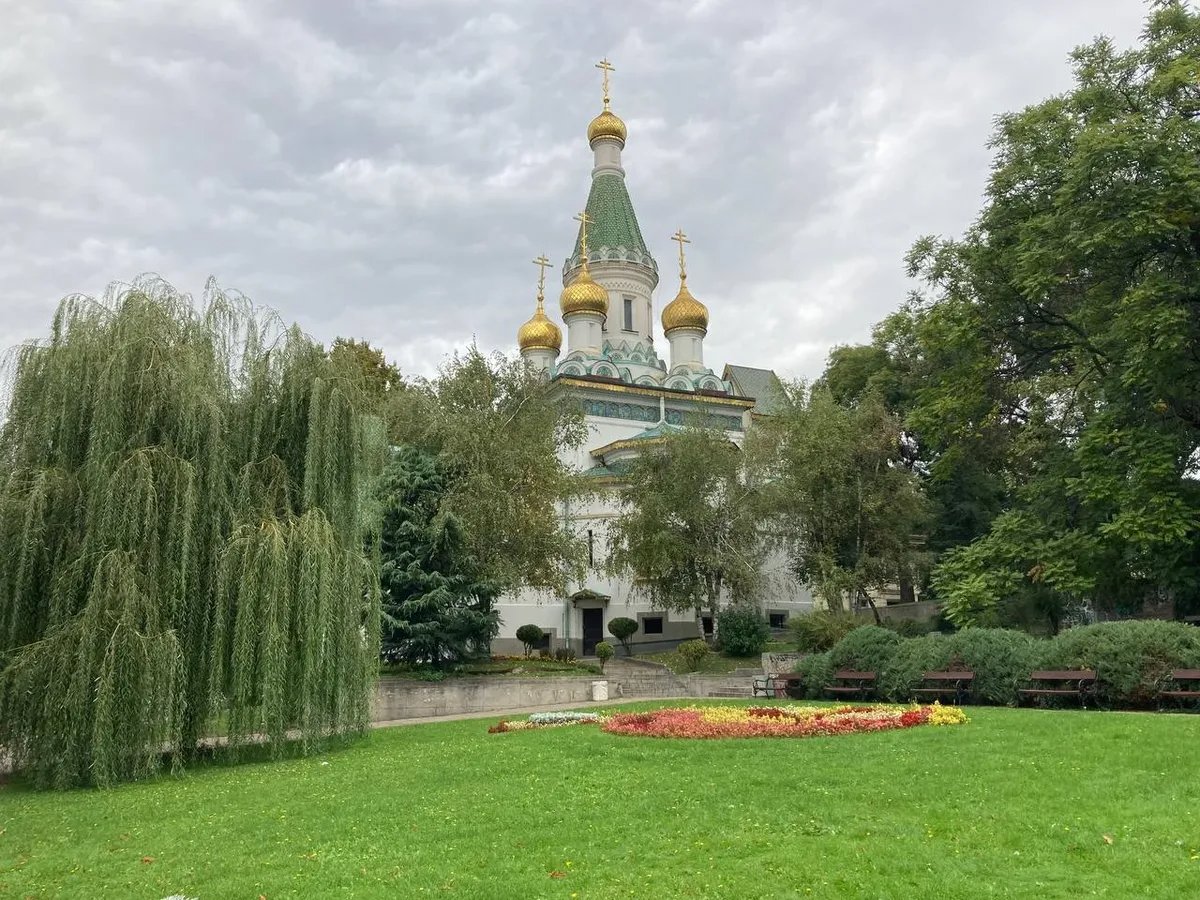
Photo: Ilya Azar, exclusively for Novaya Gazeta Europe
Disappointment about Putin
Whether it is owing to Tanev or not, but attitudes toward Putin among the Bulgarian public are changing. On March 1, 2019, then Prime Minister Boyko Borisov insisted that Bulgaria was not Russia’s Trojan horse in NATO and the EU, where Sofia acceded in 2004 and 2007 respectively. By the way, Vladimir Putin’s comment on Bulgaria’s, Romania’s, Latvia’s, Lithuania’s, and Estonia’s accession to NATO was quite reserved at the time, as he said that “Russia has no particular concerns about NATO’s enlargement from the standpoint of security.”
“Sofia doesn’t cause problems to the EU or NATO. This is not a country like Hungary, which often prevents these organisations from reaching a consensus. Even those Bulgarian politicians who present themselves as pro-Russian ones do so rather for the domestic audience. They often say one thing while in Bulgaria and absolutely different ones when they travel to Brussels and speak to EU and NATO representatives,” political scientist Smilov says.
Putin’s sky-high popularity ratings in Bulgaria have dropped by two-thirds to 20% after the start of the war.
“Why was the historical affection to Russia carried over to Putin? Can one be separated from the other?” I ask Mitov.
“It can, but it takes efforts, and people automatically extend their good feelings towards Russia to Putin. But that has changed now, because Bulgarians understand what’s happening. People here don’t like rapists,” Mitov said.
Even Russophile Malinov admits that the Russian president’s popularity in Bulgaria has fallen.
“I personally approve of Putin’s policies and openly say this all the time. I believe he is right, and I even think he should be tougher and replace liberal-communist appointees with patriotic ones more actively. But it’s true that we can’t fully communicate our clear and correct understanding of what’s happening in Ukraine to a broad public! We lack resources to reach out to all minds and hearts to tell them that it’s not aggression, although I recently had a chance to explain in a TV program that the incorporation of Crimea, Donetsk, Luhansk, Zaporizhzhia, and Kherson is not annexation.”
Former Bulgarian Economy Minister Ovtcharov of the BSP even thinks that the Russophile sentiment in Bulgaria is on the rise.
“It fell down immediately after the start of the war, but [pro-Western] propaganda in Bulgaria is so primitive and lopsided that it’s producing the opposite effect now. People don’t want to hear what Zelensky says, as they’ve realised that fifty percent of what he says is lies,” he says.
“Do you think Bulgarians have finally taken the red pill?” I ask Gennady Gudkov.
“They have! Because Putin has made lots of mistakes. What helped was that Russian Ambassador to Bulgaria Mitrofanova called Bulgarians names, that the war was started, and also that gas supply to the country’s households has been cut.”
Gas and diplomats
Indeed, the ‘Trojan horse’ bucked and refused to pay for Russian gas in rubles in April 2022.
“Putin decided to use Gazprom as an energy weapon, but Bulgarians decided not to break unity on sanctions. In this case, I am proud of Petkov’s decision,” Plevneliev said.
As Petkov himself said a bit pompously in an interview with Le Monde, “No one has the right to change the terms of the contract unilaterally. If we give in, it would mark the first schism in the European family.” He vowed that Bulgaria would not be the cause of this schism. On April 27, Gazprom cut off gas supply to Bulgaria and Poland. Sofia struggled for half a year, but then a gas pipeline interconnector linking Greece and Bulgaria (IGB) started operating on October 1. The contract under which gas from Azerbaijan is currently supplied to Bulgaria through this pipeline section via Greece had been concluded during Borisov’s premiership, but it has not been put into effect until lately. European Commission President Ursula von der Leyen said the launch of the pipeline interconnector marked the beginning of “a new era for South Eastern Europe.”
“Moscow hoped that Bulgaria would give way as a weak link in European unity, and Petkov’s ‘no’ came as a big surprise to them,” Indzhev says. “This is a crucial event for the Balkans. It’s the first time that gas coming to the region is not Russian. You must be an idiot not to understand that gas would only be cheaper now.”
Certainly, opinions on Petkov’s decision split in Bulgaria. Malinov the Russophile is opposed to it. He is sure that America is seeking to break gas ties between Russia and Europe because cheap Russian gas enables Europe to develop steadily, which is not in America’s best interests.
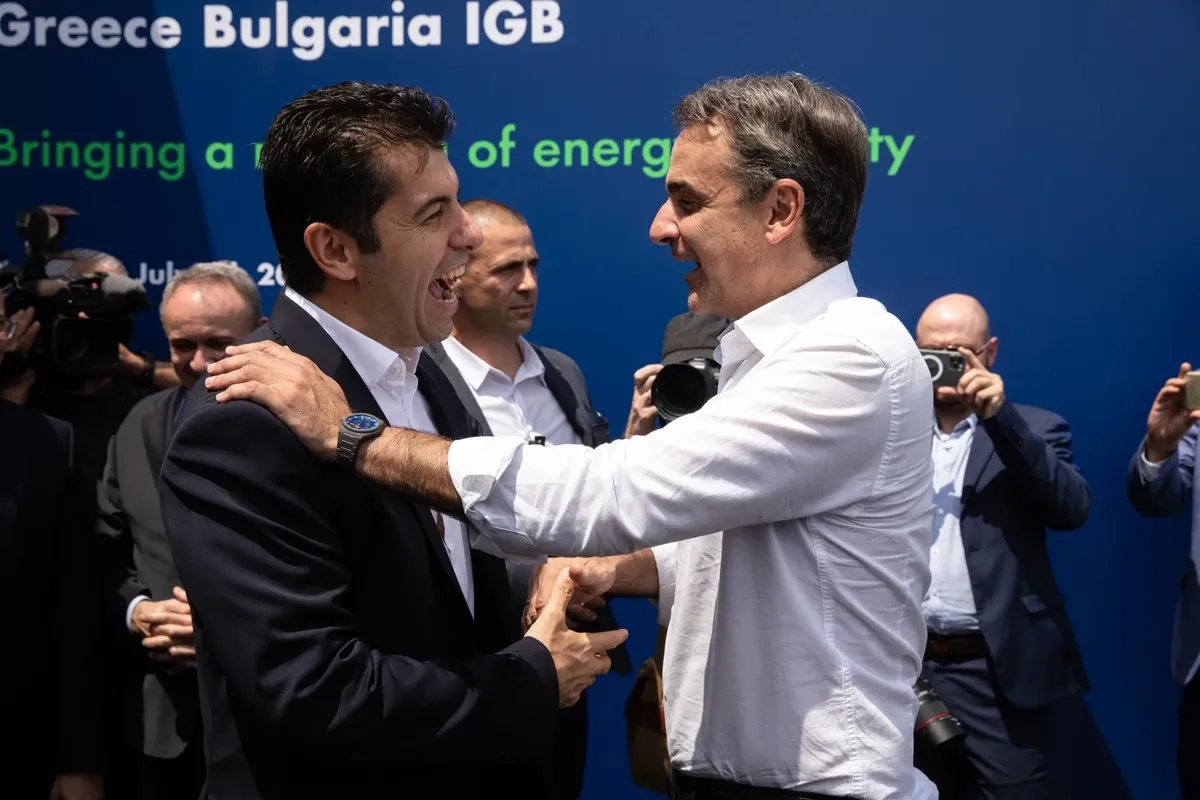
Bulgarian Prime Minister Kiril Petkov and Greek Prime Minister Kyriakos Mitsotakis inaugurating the Greece-Bulgaria gas interconnector, July 8, 2022. Photo: Konstantinos Tsakalidis / Bloomberg / Getty Images
“Severing the contract with Gazprom was absolutely pointless. Bulgaria was used as a lab rat,” says Ovtcharov from the BSP, insisting that without Gazprom, Bulgaria would be unable to find enough gas.
“Why do you think Russia did not make an exception for Bulgaria?”
“But why should it?” the ex-minister replies with a counter-question.
“But it’s a friend of Russia, is it not?”
“That was long ago and is no longer true,” Ovtcharov smiles. “What kind of a friend is it? The tourism minister from the Petkov government once told me in spring that he had arranged for launching 600 charter flights for Russian tourists in summer. And then I come home and read in the news that Bulgaria closed its airspace to Russian planes. Is it really how politics should be done?”
Political scientist Smilov says the Bulgarian government and policymakers have always been politically dependent on Moscow and invested precisely in Russian gas, but it turned out now that Sofia has access to alternative sources.
“Gas from Azerbaijan would start being supplied in full from October 1, which is a billion cubic meters a year. We expect that our gas consumption would be 20%–25% lower, and so another 300–400 million cubic meters should be added to that from the liquefied gas market, and then everything’s going to be fine,” Vassilev assures me.
However, Bulgaria still depends on Russian oil, and it recently lifted the sanctions from Russian fuel suppliers until December 31, 2024.
The expulsion of 70 employees of the Russian embassy in June dealt another blow to special relations between Bulgaria and Russia.
“The ambassador made a lot of statements, and therefore, either she had to be expelled, or something else had to be done. Plus, there were operations by Russian special services in our territory, even those involving Novichok, and no measures were taken. Hence, we had to respond amid the war in Ukraine,” Smilov assures me.
Of course, Ovtcharov disagrees again.
“Declaring 70 diplomats personae non gratae is absurd. It’s ridiculous that we’ve kicked out perhaps about a hundred Russian diplomats, but we haven’t found any accomplice of theirs in Bulgaria. But they had to receive information from someone!”
Despite the expulsion of diplomats, Russian Ambassador to Bulgaria Eleonora Mitrofanova is still staying in the country.
“We stage rallies in front of the Bulgarian presidential office every week, and Mitrofanova appeared there in September. Formally, she was visiting an exhibition at the Archaeology Museum nearby, but in reality, she sought to show she is still here, in Bulgaria,” says politician Ivan Kalchev, who fought in Ukraine.
Next day, he threw red paint over the Russian embassy building in Sofia.
Support independent journalism
An end to people’s friendship
Ex-Bulgarian Ambassador to Russia Vassilev says that, following the gas issue and the expulsion of diplomats, his country has switched to “total confrontation” with Russia. The rhetoric of Bulgarian officials who used to be well disposed toward Russia has also changed: recently, as journalist Indzhev pointed out, President Radev had to finally describe the developments in Ukraine as “aggression,” and the “vice president, who knelt before Patriarch Kirill in 2019, said unexpectedly that Putin needs to be stopped.”
“Now the Kremlin no longer believes anyone here, and it’s unwilling to go beyond the general framework of its policy toward the European Union countries so as to put Bulgaria into some separate group even for the sake of Borisov or Radev. Moscow doesn’t believe that this could bring about any long-term benefits,” former Bulgarian Ambassador Vassilev says. He is not inclined to make a tragedy out of this. “What can Russia offer us? Virtually nothing.”
He had arrived in Moscow to start his ambassadorial service ten days before Putin was elected Russian president in March 2000, and he recalls now that, following the Beslan school siege in 2004, he agreed with Lukoil that it would arrange for bringing the children who survived the attack to Bulgarian resorts. But the good-looking plans never materialised.
“Some Russian ministry didn’t allow that! Arguing that Russia has enough of its own resorts! I simply couldn’t understand that,” Vassilev gets steamed up. “That’s when it became clear to me that Putin was bent on the idea of messianism, and this won’t end well.”
Malinov the Russophile does not mince words accusing Bulgarian authorities, especially Petkov, of “ruining bridges” between the two Slavic nations, which he is trying to repair.
“I met with Lavrov two weeks ago, and we agreed that we need to preserve ourselves for times when the bridges are rebuilt. I lived in Ukraine for 14 years, I studied in school and in college there, and I left it because of nationalism back in the 1990s. Now they [the West] are trying to turn Bulgaria into another anti-Russia, following Ukraine,” Malinov says, vowing to oppose this.
“If the war ends, Putin quits, and Russia becomes democratic, will Bulgarians love Russia again?” I ask former Bulgarian Foreign Minister Mitov, possibly a future premier, as we speak on a balcony of a villa in Varna with a superb view of the Black Sea.
“The previous kind of love for Russia, which all of us used to know, is gone. This war threatens Russia’s image for years ahead. I think people who understand now what’s happening would find it hard to start loving Russia again,” Mitov replies. “I am afraid the war in Ukraine won’t end soon, and the long period of confrontation will dim the people’s affection for Russia. The Bulgarian economy and Bulgarian resorts will reorganise, and this love will decrease. The war will weaken Russia economically, Putin and his entire clique will be clients of international tribunals, and being fallen in love with Russia won’t be prestigious for years ahead.”
Join us in rebuilding Novaya Gazeta Europe
The Russian government has banned independent media. We were forced to leave our country in order to keep doing our job, telling our readers about what is going on Russia, Ukraine and Europe.
We will continue fighting against warfare and dictatorship. We believe that freedom of speech is the most efficient antidote against tyranny. Support us financially to help us fight for peace and freedom.
By clicking the Support button, you agree to the processing of your personal data.
To cancel a regular donation, please write to [email protected]
